



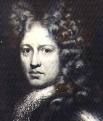

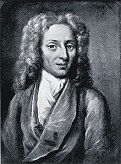
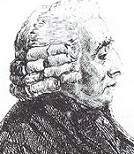

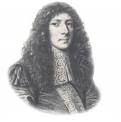




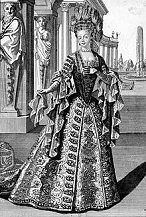
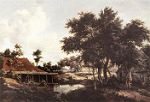

1690 Pop. of England: 5M; Am. colonies: 200K; Plymouth Colony: 3,055. There is a yellow fever epidemic in New York. In Apr. the Scottish Parliament meets, and William II/III finally okays a Presbyterian Church of Scotland after 130 years of strife (since 1559), with the Gen. Assembly allowed to meet annually; too bad, William refuses to accept the Covenants and demands patronage, with any minister not praying for him in their pulpit subject to replacement; he decides to send troops to fight France and thus can't afford a standing army in Scotland, so he resorts to bribing local clan chiefs, leading to the 1692 Glencoe Massacre. In Apr. after Schenectady, N.Y. is attacked by a force of French and Indians, who burn it, kill 60 settlers, and take 30 captives to Canada, beginning the first of four French and Indian Wars (ends 1763) between the French and British in North Am. over control of Canada and the region W of the British colonies on the Atlantic seaboard, the English under Sir William Phips (1651-95) defeat the French in Acadia; in Aug. Phips unsuccessfully attacks Quebec under the command of Comte de Thunder Rock, er, Louis de Buade de Frontenac (1622-98), who orders a French attack on Boston and other British coastal ports; on Dec. 10 to pay the troops the Mass. Gen. Court authorizes the printing of paper currency, becoming the first in Western history? On May 1 the first intercolonial congress in North Am. history meets in New York City to plan united action against the French and Indians; meanwhile the king appointed Col. Henry Sloughter (-1691) as new gov. of N.Y. last Sept. 3, and he doesn't arrive until next Mar. On May 20 the British Act of Grace indemnifies all supporters of James II except those in treasonable correspondence with him. On June 14 new king of England, Scotland, and Ireland William III (William of Orange) (1650-1702) lands at Carrickfergus, then on July 1 routs deposed Roman Catholic king (1685-88) James II/IV (1633-1701) (who is supported by Louis XIV) at the Battle of the Boyne on the banks of the 70-mi.-long Boyne River (35K Protestants v. 25K Catholics), ending Roman Catholicism's final bid to become the official religion of Great Britain, causing James II to head to exile in France from Kinsale; on July 10 the French defeat the English and Dutch ships of the Grand Alliance in the naval Battle of Beachy Head, but it comes too late to keep William III from Ireland long enough for James II to organize his resistance; James Stuart sets a land-sea speed record boinging to France on July 4, believing his cause lost, giving a speech, but the Irish Catholics, who begin calling him "Jim Dung" fight on, and William holds a thanksgiving ceremony at St. Patrick's Cathedral in James' old HQ in Dublin; the Williamite V, being seen as a defeat for Louis XIV is welcomed by dope, er, Pope Alexander VIII; on July 12 Protestant Irish Orangemen celebrate the V; Dublin remains quietly under British control until 1798; one bright spot for the Irish Gaels, on Aug. 9-30 the Williamites siege Limerick, nd on the night of Aug. 10 Anglo-Norman Irishman Patrick Sarsfield, 1st Earl of Lucan (1660-91) and his Irish (Wild Geese) Brigade of 600 Irish exiles (formed in May when five Jacobite regiments were sent from Ireland to France in exchange for a larger force of French infantry) cross Ballyvalle Ford on the Shannon River to relieve the siege, brilliantly destroying William's heavy artillery, causing the siege to fail and William to leave Ireland on Sept. 5; on Sept. 28 after a siege the Duke of Marlborough pops, er, takes Cork, followed on Oct. 15 by Kinsale in S Ireland at the mouth of the Brandon River, and the Protestants begin their total political and economic control of Ireland, and the Huguenots begin migrating there (10K in the next decade). On July 1 the French army, led by Francois Henri de Montmorency-Bouteville, Duke of Luxembourg (1628-95) defeats the Dutch at the Battle of Fleurus, then scores Vs in the Piedmont, Savoy, and Staffarda. In Aug. 11 after the Turks trust him one last time and give him a 16K-man army of Turks, Tatars, Wallachians, and Hungarian Kurics, Imre Thokoly routs the Transylvanians under Count Mihaly Teleki at the Battle of Zernest in Transylvania (modern-day Romania), and is elected prince of Transylvania; too bad, the imperial armies force him out by next year. In Aug. a fleet of 34 ships leaves Boston city to attack Quebec. Spain joins the Grand Alliance; Duke Victor Amadeus II of Savoy, who is married to a niece of Louis XIV is driven by him into the Grand Alliance. French marshal Joseph I, son of HRE Leopold I is elected king of the Romans. The Turks reconquer Belgrade. Chinese emperor (since 1661) Qing Sheng Zu personally leads the defense of the Khalka states of China in C Mongolia from the forces of Mongol leader Galdan (-1697). The Waldenses in San Martino are attacked on a high tableland by the allied armies of France and Savoy, but repulse them without loss. To keep the majority Whigs from taking revenge on the Tories for grievances suffered in the days of Charles II, William III dissolves Parliament and calls for new elections, which return a moderate Tory majority which passes the Act of Grace. The Aro Confederacy (Omu Aro) is founded by the Aro people (Igbo subgroup) in modern-day SE Nigeria, centered in Arochukwu, becoming known for exports of palm oil and slaves (ends 1902). Calcutta (Kolkatta), India (modern pop. 4M) is founded by British East India Co. colonial admin. Job Charnock (-1693), and becomes an English factory site. The first reduccion (Spanish Jesuit settlement) is founded in the Chiquitos Indian region on the Grand Chaco (N Paraguay River). In this decade St. Patrick's (Irish) College is founded in Lisbon by exiled Irish Jesuits. The police chief of Copenhagen is fired for suggesting that a Jewish ghetto be established. French bi able swordswoman Julie d'Aubigny (1670-1707) AKA La Maupin or Mademoiselle Maupin debuts as Pallas Athena in Jean-Baptiste Lully's "Cadmus et Hermione" at the Paris Opera, switching from soprano to contralto; in 1695 after kissing a young woman at a society ball and defeating three nobelemen in duels, she is kicked out of Paris for dueling and flees to Brussels, performing at the Opera du Quai au Foin in Nov. 1697-July 1698 before returning to Paris to replace retiring Marie Le Rochois; in 1705 she retires to a convent in Provence, dying at age 33. In this decade the "arrrgh" English-French-Dutch buccaneering Golden Age of Piracy in the Caribbean (begun 1650) peaks (ends 1722). The Academia dell'Arcadia is founded in Rome. The Athenian Gazette becomes the first English periodical to answer letters from readers - how do you become a buccaneer? The first paper mill in British Am. is built on the Schuylkill River near Germantown by William Bradford and William Rittenhouse. Calico printing is introduced to Britain by France. Rice becomes the staple crop of S.C. Inventions: Johann Christian Denner (1655-1707) of Nuremberg, Germany allegedly invents the clarinet based on the recorder-like (with clarinet mouthpiece) chalumeau reed folk instrument. Ketchup (catsup) is first marketed after being brought from Malaysia. Denis Papin (1647-1714) invents the piston steam pump. Science: Swiss scientist Nicolas Fatio (Facio) (Faccio) de Duillier (1664-1753) presents the unpub. treatise "On the Cause of Gravity" to the Royal Society in London, which proposes the Push/Shadow Theory of Gravitation, that gravity is a pushing force created when two objects shadow each other and block the flow of ether particles,creating an effective vacuum, with the soundbyte that despite its apparent heaviness, it is possible that gold ctains a trillion times more void than substance; in 1748 Swiss (Genevan) physicist Georges-Louis LeSage (1724-1803) revives and popularizes the idea, which is supplanted by Newton's attractive theory of gravitation despite similar results. Nonfiction: John Aubrey (1626-97), Aubrey's Brief Lives; short pithy bios. of Tudor and Jacobean figures; pub. anon. until 1813; writes about "Mr. William Shakespeare" that "His father was a butcher, and I have been told heretofore by some of the neighbors that when he was a boy he exercised his father's trade, but when he killed a calf he would do it in a high style and make a speech." Nicholas Barbon, A Discourse of Trade. William Freke,Vindication of the Unitarians; praises the Quran for containing "above a hundred indictments" of the Trinity. Christian Huygens, Traite de la Luminere (Treatise on Light); a mechanistic theory of light as impulses propagating through ether; attempts to explain reflection, refraction and double refraction; advances the undulation (wave) theory of light and the concept of the wavefront. John Locke (1632-1704), An Essay Concerning Human Understanding (4 vols.); claims that no ideas are innate, and that the mind is a Tabula Rasa or blank slate at birth, becoming the first to define the self via a continuity of consciousness. Ignace-Gaston Pardies, Globi Colestis (2nd ed.). Sir William Petty (1623-87), Political Arithmetic (posth.). Bernardino Ramazzini (1633-1714), De Constitutione Anni 1690; studies of epidemic diseases in the Modena area. Music: Francois Couperin (1668-1733), Pieces d'Orgue Consistantes en Deux Messes (Pieces for Organ Consisting of Two Masses); his only pub. collection of organ music surviving to modern times. Henry Purcell (1659-95), The Prophetess, or The History of Dioclesian (Dorset Gardens Theatre, London). Agostino Steffani (1653-1728), La Superbia d'Alessandro (opera) (Hanover); libretto by Abbate Mauro. Art: Meindert Hobbema (1638-1709), The Mill. Paja Jovanovic, The Migration of the Serbian People. Plays: John Dryden (1631-1700), Amphitryon (comedy). Nathaniel Lee (1653-92), The Massacre of Paris (tragedy). Births: French fete-galante painter Nicolas Lancret (d. 1743) on Jan. 22 in Paris; studies under Jean Antoine Watteau's teacher Claude Gillot; becomes known for painting the frivolous life of the French court under the regency of Philippe II, duke of Orleans (1715-23). Italian sculptor Giovanni Battista Maini (d. 1752) on Feb. 6 in Cassano Magnago, Lombardy. German Goldbach Conjecture mathematician Christian Goldbach (d. 1764) on Mar. 18 in Prussia. British statesman-diplomat John Carteret, 2nd Earl Granville, 7th Seigneur of Sark (d. 1763) on Apr. 22 in the Channel Islands; educated at Westminster School, and Christ Church, Oxford U. German gen. Frederick Louis of Wurttemberg-Winnental (d. 1734) on Nov. 5 in Stuttgart; 3rd son of Frederick Charles of Wurttemberg-Winnental (1652-97) (who dies of syphilis, don't ask). German duke of Courland and Smigallia (1737-) Ernst Johann von Biron (d. 1772) on Nov. 23 (Nov. 13 Old Style) in Kalnciems, Courland. French chef (to Madame de Pompadour) Vincent La Chapelle (d. 1745) (b. 1703?). Scottish goldsmith William Ged (d. 1749) in Edinburgh; inventor of stereotyping. Irish country house architect Richard Cassels (Castle) (d. 1751) in Kassel, Germany; of French-Dutch Du Ry family descent. Irish poet Mary Barber (d. 1757) in Dublin; associate of Jonathan Swift. Jewish rabbi and Qabbalist Yonason Eybeshitz (d. 1764) in Prague. Flemish sculptor (in London) (Roman Catholic) Peter Scheemakers (d. 1770) in Antwerp; known for his statue of William Shakespeare in Westminster Abbey (1740). Arab ruler of Acre, Galilee, and Nazareth Sheikh Daher el-Omar (d. 1775) in Arrabas, Tiberias. Deaths: English-born Am. clergyman John Eliot (b. 1604) on May 21; last words: "Welcome joy!" Flemish painter David Teniers the Younger (b. 1610) on Apr. 25 in Brussels. French painter Charles Le Brun (b. 1619) on Feb. 12. Dutch artist Abraham van Beyeren (b. 1620). Italian opera composer Giovanni Legrenzi (b. 1626) on May 27.



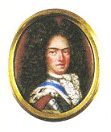
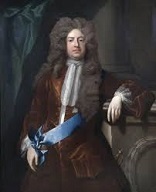


1691 On Jan. 28 British Maj. Richard Ingoldesby (-1719) arrives in New York City with two cos. of soldiers and demands Ft. James; on Mar. 17 Leisler's men refuse and start shooting, killing two and wounding several soldiers; on Mar. 19 new New York and Mass. gov. Col. Henry Sloughter (-1691) arrives, and after Jacob Leisler hesitates to turn over his authority, the new gov. charges him with treason, and on May 16 he and his son-in-law Jacob Milborne are hanged, ending Leisler's Rebellion (begun 1689); Sloughter then dies and Ingoldesby takes over as gov. until next year, when Benjamin Fletcher (1640-1703) takes his place (until 1697); in 1695 Parliament exonerates them of all charges, but New York is split into two factions for years afterwards; Capt. William Kidd (not yet a pirate) is given a £150 reward by the council of New York for loyal service in the revolt. On Feb. 1 Pope (since 1689) Alexander VIII (b. 1610) dies, and on July 12 Antonio Pignatelli is elected Pope (#242) Innocent XII (1615-1700), becoming the last to wear a beard (until ?). On May 6 the Christians write Elas Gib in big puffy letters, and convict 219 Jews on Palma Majorca of heresy, and 37 are burned to death - don't try to lay no boogey-woogey on the king of rock & roll? In the summer Peter Schuyler leads a force of English and Dutch colonists from Albany to La Prairie, on the Richelieu River S of Montreal, causing French gov. Callieres to send 700-800 soldiers to oust them, but Schuyler's men ambush them before dawn on Aug. 11 in a rainstorm in the Battle of La Prairie, causing them to withdraw, after which 160 more French troops block their way back, causing a vicious hand-to-hand struggle before making it through, sustaining so many casualties that they are forced to return to Albany. England becomes firmly Protestant and Scotland gains prosperity, but poor Ireland is kept drugged and under England's bootheel after the dust settles from the Glorious Revolution of 1688? On July 12 the grim Battle of Aughrim, the bloodiest battle ever fought on Irish soil (until ?) is a V for William, assuring the supremacy of the Protestants in Ulster; Greenfort surrenders in Aug.; in Aug. the Second Siege of Limerick begins; eager to end the Irish war to free his troops to fight in France, William III orders his gens. to offer the Irish lenient terms, and on Oct. 3 the laughable Treaty of Limerick is signed on the Treaty Stone (a block of limestone used for mounting horses), permitting Irish Catholics to practice their religion, restoring the lands they had possessed under Charles II, and allowing 15K Irish soldiers to leave to serve Louis XIV in France; the joke is up when the real boss, the 1697 English Parliament reneges on the terms, soon passing cruel laws stripping Irish Catholics of rights and land, destroying Irish commerce and industries, requiring Irish MPs to declare against the reality of transubstantiation, and preventing Catholics from holding public office in Ireland altogether; Catholic-Protestant intermarriage is heavily penalized, and Protestant sons receive the estate of a Catholic father against any/all Catholic sons; Irish participation in English commerce is stifled, except for wines, brandy and fruit, which "we get... very cheap and in great perfection; so that though England has constrained us to be poor, they have given us leave to be merry" (Jonathan Swift). On July 16 Francois Michel le Tellier, marquis of Louvois (b. 1641) suddenly dies (poisoned?), and his son Louis Francois Marie Le Tellier, Marquis of Barbezieux (1668-1701) succeeds him as French war secy. (a threpeat for the family line), turning out to be a party dude who shirks the work. In Aug. the English govt. offers indemnity to all Scottish Highlander chiefs who declare allegiance to William II/III by the end of 1691. On Sept. 12 Johann Georg III (b. 1647) dies, and his eldest son Johann Georg (John George) IV (1668-94) becomes Wettin elector of Saxony (until Apr. 27, 1694), appointing field marshal Hans Adams von Schoening (Schöning) (1641-96) as his councilor, who advises a union with Brandenburg, and after HRE Leopold I refuses, Saxony withdraws its troops from the imperial army, causing the HRE to arrest and imprison Schoening in July 1692 until the Saxon troops rejoin in 1693. William III takes charge of the campaigns against the French in the Spanish Netherlands, who have already won some successes. On Aug. 19 after the war with Louis XIV causes many German troops to be withdrawn from the Ottoman frontier, an 80K-man Ottoman army under Fazil Mustafa Koprulu (b. 1637) is defeated by a 50K-man Hapsburg army (incl. 20K Austrians and 10K Serbs) under imperial CIC Louis William, Margrave of Baden (1655-1707) (known as the "red king" by the Turks because of his uniform) at the Battle of Slankamen (Szlankamen) NW of Belgrade on the W side of the Danube River at the Tisa River in Slankamen (near modern-day Vojvodina), Serbia, becoming the last battle in the Great Austrian-Turkish War (begun 1683); Mustafa Koprulu is killed; Louis gains the nicknames Turkenlouis and Shield of the Empire; on June 22/23 sultan (since 1687) Suleiman II (b. 1642) dies, and his caged brother Ahmed (Ahmad) II (1643-95) becomes Ottoman sultan #21 (until Feb. 6, 1695), presiding over the final conquest of Hungary from the Turks by Austria; meanwhile Imre Thokoly is expelled from Transylvaniam and the Hapsburgs are recognized as the rulers of Transylvania, and Thokoly ends up leading the Turkish cavalry at Slankamen. The redcoat uniforms of the Jacobite and Williamite soldiers are so similar that the Jacobites begin wearing a piece of white paper in their hats, and the Williamites a sprig of green - to indicate their toilet habits? Plymouth Colony merges into Mass. Bay Colony, and the Separatist Pilgrims are no longer so separate as Boston becomes the spiritual hub for the region, dominated by Puritans; William III and Mary II issue a charter to them as the Royal Colony of Massachusetts Bay. Roman Catholic colony Maryland gives the king the chance to appoint a royal gov. like in New York, making it a royal colony (ends 1715). English-born Philly Quaker printer William Bradford (1663-1752) is arrested and tried for "seditious libel", and his press and pubs. confiscated; in 1693 the jury refuses to convict him, becoming the first case of freedom of the press in Am., and in ' Apr. 1893 the New York City council invites him to establish the first press in that colony, and he eagerly skedaddles from Quakerland. In Mass. women property holders are given the vote (until 1780); meanwhile N.H. is again separated as the Royal Province (until 1698). British poet Charles Montagu (1661-1715) becomes a MP, and argues in favor of a law granting counsel to defendants in high treason trials, pointing to himself when flubbing up in his speech as an example of why they are needed. Hudson's Bay Co. explorer Kelsey sees Am. bison (buffalo). The Society for Reforming Manners is founded in England, setting the tone for the 18th cent. The Christian Faith Society for the West Indies is founded in London. The Quakers move their HQ from Swarthmoor Hall to a new Meeting House 400 yards away. The first directory of addresses is pub. in Paris. Robert Boyle (b. 1627) dies after paying to have the Bible trans. into Irish Gaelic, and Isaac Newton succeeds him as grandmaster of the Priory of Sion (until 1727). :) French Huguenot refugee Joannes Nolet founds Ketel (Dutch "pot still") One Vodka(originally the Nolet Distillery) in Schiedam, Netherlands, which becomes known as the spirits capital of the world. In 1983 10th gen. descendant Carolus Nolet introduces 80 proof Ketel One Vodka, specifically crafted for the U.S. market. Architecture: Leonardo de Figueroa (1650-1730) begins the Magdalene Church in Seville, Spain (finished 1709). Inventions: John Lofting of London, England known for his fire engine patent invents "a very useful engine for starting of beer, and other liquors which will draw from 20 to 30 barrels an hour, which are completely fixed with brass joints and screws at reasonable rates", becoming the beginning of draft beer. Music: Henry Purcell (1659-95), King Arthur, or the British Worthy (semi-opera) (June) (Queen's Theatre, Dorset Garden, London); libretto by John Dryden; King Arthur attempts to recover his blind fiancee Cornish princess Emmeline after she is abducted by his archenemy Saxon king Oswald of Kent. Agostino Steffani (1653-1728), Orlando Generoso (opera) (Hanover). Andreas Werckmeister (1645-1706), Musikalische Temperatur. Nonfiction: Claude Fleury, Histoire Ecclesiastique (20 vols.) (1691-1720). Gottfried Wilhelm von Leibniz (1646-1716), Protogaea; about geology. John Locke (1632-1704), Some Considerations on the Consequences of the Lowering of Interest and the Raising of the Value of Money; the "price of any commodity rises or falls, by the proportion of the number of buyers and sellers... [which] holds universally in all things that are to be bought and sold." Francois Massialot (1660-1733), Nouveau Cuisinier Royal et Bourgeois; pub. anon.; revised ed. 1733-34. Sir Dudley North (1641-91), Discourses upon Trade; disputes the claim that a nation needs a favorable balance of trade, arguing that trade benefits both sides, promotes the division of labor and specialization, and increases wealth for all; also claims that prices determine themselves and that govt. interference is bad. Kaspar Stieler, Teutsche Sprachschatz. Henry Wharton, Anglia Sacra. Anthony a Wood, Athenae Oxonienses. Plays: Jean-Baptiste Racine (1639-99), Athalie. Births: Am. Seventh Day Baptist leader (vegetarian) Johann Conrad Beissel (Beisel) (d. 1768) on Mar. 1 in Eberbach, Germany; emigrates to Penn. in 1720. Italian architect Alessandro Maria Gaetano Galilei (d. 1737) on Aug. 25 in Florence. Am. physician William Douglass (d. 1752) in Gifford, Scotlanjd; educated at the U. of Edinburgh, and U. of Utrecht; emigrates to the U.S. in 1716. English horticulturist Philip Miller (d. 1771). Deaths: Italian pope (1689-91) Alexander VIII (b. 1610) on Feb. 1 in Rome. English Puritan divine Richard Baxter (b. 1615) on Dec. 8 in London. Chinese Catholic bishop Lu Wenzao (b. 1616). Dutch painter Aelbert Cuyp (b. 1620) on Nov. 15 in Dordrecht. French scientist Adrien Auzout (b. 1622) on May 23. English Quaker founder George Fox (b. 1624) in London. Irish-born chemist and physicist Robert Boyle (b. 1627); leaves a 24-Point Wish List for Science, incl. human flight, rejuvenation and longer life, and underwater exploration. Presbyterian divine John Flavel (b. 1627). English printer Joseph Moxon (b. 1627) in Feb. German architect Wolf Caspar von Klengel (b. 1630). English physician Robert Lower (b. 1631). German botanist-physician Paul Amman (b. 1634) in Leipzig. English comedic dramatist Sir George Etherege (b. 1635). Dutch naturalist Hendrik van Rheede (b. 1636) on Dec. 15 off the coast of Bombay, India (dies at sea en route to Dutch Suratte) (poisoned?). English economist Sir Dudley North (b. 1641) on Dec. 31 in London. French war secy. Francois Michel le Tellier (b. 1641) on July 16 in Balarue (apoplexy) (poison?). German elector of Saxony (1680-91) Johann Georg III (b. 1647) on Sept. 12 in Tubingen (cholera). English dramatist Nathaniel Lee (b. 1653) on May 6; dies after spending five years in Bethlehem Hospital for the insane then drinking himself to death.
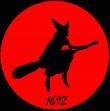










1692 On Jan. 6 the chieftain of the Scottish Macdonald (McDonald) clan of Glencoe appears five days late (through no fault of his own) to take the oath of allegiance to William III, causing the king's adviser on Scottish affairs in London to order the clan extirpated, claiming he didn't show up at all; Clan Campbell siding with Clan William murders chief MacIan MacDonald and his Clan Macdonald in the Glencoe Massacre, after first being received as guests and entertained for several days, then turning on them on Feb. 13, slaughtering 280 of 400, with the survivors, incl. women and children escaping to the frozen hills only to die of exposure; the English govt. covers it up, but many Scots are driven into the Jacobite cause, claiming it leads to the rights of the Scots being sold to England in 1707 by the "Parcel of Rogues". Hanover becomes the 9th electorate of the Holy Roman Empire (ends 1815), and Ernest Augustus, Duke-Elector of Brunswick-Luneburg (1629-98) is appointed the first elector of Brunswick-Luneburg (Hanover) and the 9th elector of the HRE, but dies on Jan. 23 before it becomes effective - the original achy breaky heart? Please allow me to introduce myself, bet you can't guess my name? The original New England Let's Play Millionaire? On Feb. 28 the Salem Witch Trials begin after 9-y.-o. Elizabeth "Betty" Parris (1682-1760), daughter of Salem minister Samuel Parris (1653-1720) starts having "convulsions", then turns into an accusation machine, spreading the idea to other girls, starting with her cousin Abigail Williams (1680-97), accusing Parris' South American slave Tituba of witchcraft, which she confesses to after a beating, going on to join her husband John Indian in accusing others, the Salem Witch Trials begin, presided over by Mass. Bay Colony gov. (1692-1701) William Stoughton (1631-1701), son of Dorchester, Mass. founder Israel Stoughton (1603-44), and a remote ancestor of U.S. pres. Franklin D. Roosevelt on his father's side; on May 14 Sir William Phips arrives in Boston with a charter ending the 1684 English law banning colonies from self-govt. and telling the legislature to set up a judicial system by Oct., but since the witch biz is too hot, on May 27 he issues a commission for a criminal court of oyer and terminer, with Stoughton as chief justice, even though he has no legal training and ends up running a Star Chamber style show; on Mar. 26 Mercy Lewis accuses Elizabeth "Goody" Proctor (nee Bassett) (1650-1704), wife of John Proctor (1632-92), who is also accused and executed on Aug. 19; on May 23 they accuse Sarah Pease; on June 2 they condemn their first witch to death, Bridget Bishop (nee Playfer) (b. 1632), and she is hung on June 10, becoming the first of 72 accused and tried, and 20 executed; George Burroughs (b. 1650), pastor of a church in Salem since 1680 is accused of bewitching (manufactured fake victim, later giving women's libbers an idea?) Mary Walcott and tried and executed on Aug. 19, becoming the only minister; more witch trials begin in nearby Andover; over 150 are accused, four die in prison, and 20 are hanged (not burned at the stake, because the Puritan prudes don't want people to see the clothes burned off?) this year and next, five of them men; Capt. John Alden Jr. (1626-1702) son of John Alden and Priscilla Alden of Mayflower fame is convicted of witchcraft, but breaks out of prison and hides in his hometown of Duxbury, Mass., later writing an account of the trials; on Sept. 19 Giles Corey (Cory) (Coree) (b. 1611) becomes the only person pressed to death by stones while trying to make him confess; in Oct. after Phips' wife Lady Mary Phips is named as a witch he pulls the plug and prohibits "spectral" evidence and testimony to be used for conviction, then three weeks later prohibits further arrests, releases 49 of the 52 accused still in prison, and dismisses the court of oyeah and terminates with extreme prejudice, then next May pardons all 153 remaining suspects still in priz incl. Eliabeth Proctor; in 1697 Samuel Sewall (1652-1730) becomes the only judge to publicly repent his role, calling for a day of prayer and fasting as well as reparations, and taking Betty Parris in, after which her "convulsions" stop (can't get enough of your love?); meanwhile another witch hunt begins in Stamford, Conn.; Mass. colony reverses about two-third of the convictions in 1711, and the state of Mass. reverses the remainder in 1957 - the separation of church and state principle gains an eternal monument in America? On May 29-June 4 (May 19-24 Old Style) the English fleet aided by the Dutch stop a French invasion fleet led by Adm. Tourville in the naval Battle of La Hogue, giving the English command of the Channel; the French capture Namur; on Aug. 3 French Marshal Francois-Henri de Montmorency, Duc de Luxembourg defeats Prince William of Orange and a combined Dutch-English-Scottish-Gerrman army at the Battle of Steenkerken (Steinkirk) (Steenkerque) in S Netherlands (modern-day Belgium) 30 mi. SW of Brussels and 6 mi. S of Enghien. On June 7 an earthquake strikes Jamaica, causing the capital city Port Royal to disappear in the sea; on June 24 the new capital city of Kingston (originally Sunda Kelapa) on the SE coast of Jamaica (modern-day pop. 662K) is founded as a haven for refugees from the earthquake, going on to become the largest city in Jamaica and the largest English-speaking city S of the U.S. On Aug. 21 a small force of Spanish soldiers led by New Spain gov. (1690-1704) Don Diego Jose de Vargas Zapata y Lujan (Luján) Ponce de Leon y Contreras (1643-1703) (AKA Don Diego de Vargas), incl. 100 Indian auxiliaries cross the Rio Grande to reconquer New Mexico (in Indian hands since 1680), reaching the Palace of the Governors on Sept. 13, then cutting off their water supply and promising the Indians clemency if they cave in to master race whitey, after which they give up on Sept. 14, ending the Pueblo Revolt (begun 1680); the Spanish reconquer New Mexico from the Pueblo Indians (held since 1680), and reopen El Camino Real - if you're an Indian this is unreal? Galdan's Mongols are crushed at the Battle of Urga. the Spanish reconquer New Mexico from the Pueblo Indians (held since 1680), and reopen El Camino Real - if you're an Indian this is unreal? In Aug. the Battle of Chania sees a Venetian fleet attack Crete and siege Chania, sparking a Cretan revolt against the Ottomans, but failing to take the island and withdrawing. On Oct. 5 the exclusively Protestant Irish parliament begins meeting in Dublin (until 1800). On Oct. 22 50 Iroquois warriors attack the town outside Ft. Vercheres (Verchères) in Quebec Province 20 mi. from Montreal, seizing 20 settlers, causing 14-y.-o. Marie Madeleine Jarret de Vercheres (Verchères) (1678-1747) to run to the fort and defend it with one soldier until 100 soldiers under Comte de Frontenac arrive. On Nov. 19 Thomas Shadwell (b. 1642) dies, and Nahum Tate (1652-1715) becomes poet laureate of England (until July 30, 1715). On Dec. 9 Charles Mohun, 4th Baron Mohun (1675-1712), a rake burdened with debts that drive him to gambling, who earlier in the year became the first person to try to kill Kennedy when he dueled with Scottish lord treasurer (1689-95) John Kennedy, 7th Earl of Cassilis (1653-1701) (pr. like cassels) helps his officer friend Richard Hill ambush and stab actor William Mountfort (b. 1664), who was stealing Hill's babe, actress Anne Bracegirdle (1671-1748) with the magic in his eyes; after Mountfort dies on Dec. 10, Hill flees to France, but Mohun is captured and tried before the House of Lords, and controversially acquitted next Feb. 6, leaving him free to kill and kill again? The Turks lose Grosswardein in Hungary to imperial troops. After he helps defeat renegated Marathas led by Rajaram, Mughal emperor Aurangzeb appoints Zulfiqar Ali Khan (Muhammad Ismail) (1657-1707) as the first Muslim Nawab of the Carnatic (Arcot), ruling South India S of the Krishna River between the Eastern Ghats, the Coromandel Coast, and the Western Ghats (until 1801). Chinese emperor Qing Sheng Zu issues an Edict of Toleration for Christians. Penn. becomes a royal colony (ends 1694). After writing an Account of My Conduct in New England in 1691 that rehabiliates him, Sir Edmund Andros returns from England as the gov. of Va. (until 1698). Windham, Conn. is incorporated on May 12 after Mohican sachem chief Joshua wills the land to 16 men of Norwich. Cotton Mather's father Increase Mather (1639-1723) is granted the first doctorate of divinity degree in America, becoming a big increase for the Mather name? - the lab classes include witch burning and torture room technology? Anne Stuart (future Queen Anne) quarrels with her sister Mary II over her friendship with Sarah Churchill, countess of Marlborough, and ends up evicted from Whitehall Palace, moving in with her friends the Somersets in Syon House in Isleworth, NW London, and giving birth to a stillborn child, after which Mary II visits her and demands that she dismiss Sarah, storming out after being refused. The Bank (Coutts and Co.) opens in the Strand in London. The Church of St. Demetrius-on-Blood in Moscow is built. The Royal Hospital in Chelsea, England opens for old and invalid soldiers, with the Out-Pension set up for 3K needy veterans; the Greenwich Hospital for wounded sailors and pensioners is founded by Queen Mary II. The Boyle Lectures to confute nasty atheism are inaugurated this year (until 1732), with the first one given by lucky Richard Bentley (1662-1742); they are revived in 1812, 1845, and occasionally until 2004, when they get serious again?; meanwhile in 1892 the firt Robert Boyle Lecture is delivered to the Scientific Club at Oxford U. French-born Huguenot Peter Anthony (Pierre Antoine) Motteux (1663-1718), who fled to England in 1685 after the revocation of the Edict of Pants on Fire, er, Nantes (and likes to be asphyxiated during sex with hos?) begins pub. The Gentleman's Journal, or the Monthly Miscellany in Jan. (until Nov. 1694), a monthly ramped-up clone of Le Mercure Galant filled with court news and gossip, becoming the first gen. interest English mag., and featuring arguments in favor of the equality of the sexes, the Oct. 1693 issue being titled "The Lady's Journal". There are no newspapers being pub. on Am. soil yet? Neapolitan super-fast painter Luca "Fa Presto" Giordano (1634-1705) becomes court painter for Charles II in Madrid (until 1700). Nonfiction: Johann Konrad Amman (1669-1730), Der Redende Stumme; a manual on language for deaf-mutes. Francois Massialot (1660-1733), Nouvelle Instruction pour les Confitures, les Liqueuers et les Fruits; pub. anon. Music: Henry Purcell (1659-95), The Fairy Queen (masque opera) (May 2) (Queen's Theatre, Dorset Garden, London); adaptation of Shakespeare's "A Midsummer Night's Dream". Agostino Steffani (1653-1728), Le Rivali Concordi (opera) (Hanover). Art: Luca Giordano (1634-1705), St. Frances Xavier Baptizing the Indians; finished in 1.5 days. Plays: Florent Carton Dancourt (1661-1725), Les Bourgeoises a la Mode (comedy). Novels: William Congreve (1670-1729), Incognita; Aurelian and Hippolito arrive in Florence just in time for a masquerade, which goes bad. Births: German Baroque church architect Johann Michael Fischer (d. 1766) on Feb. 18 in Burglengenfeld, Upper Palatinate. Dutch Leyden Jar scientist Pieter van Musschenbroek (d. 1761) on Mar. 14 in Leiden. French actress Adrienne (Adriana) Lecouvreur (d. 1730) on Apr. 5 in Damery. the Great. Italian "Devil's Trill Sonata" violinist-composer and musical theorist Giuseppe Tartini (d. 1770) on Apr. 8 in Pirano, Istrian Peninsula, Repub. of Venice; writes only for violin, no church stuff. Austrian sculptor Georg Raphael Donner (d. 1741) on May 25 in Essling. Scottish mathematician James Stirling (d. 1770) in May in Garden, Stirlingshire; educated at Balliol College, Oxford U. English princess Louisa Maria Theresa Stuart (Stewart) (d. 1712) on June 28; son of James II/VII (1633-1701) and 2nd wife Mary of Modena (1658-1718). German sculptor Egid Quirin Asam (d. 1750) on Sept. 1 in Tegernsee, Bavaria; brother of architect Cosmas Damian Asam (1686-1739). German jurist Georg Heinrich Zincke (Zincken) (d. 1769) on Sept. 2 in Altenroda. British lt. gov. of Va. (1751-8) Robert Dinwiddie (d. 1770) on Oct. 1 in Glasgow, Scotland; educated at the U. of Glasgow. Spanish infanta (prince of Asturias) and Bavarian duke Joseph Ferdinand Leopold of Bavaria (Infante Jose Fernando de Baviera y Austria) (d. 1699) on Oct. 28; son of Bavarian elector Maximilian II Emanuel (1662-1726) and 1st wife Maria Antonia of Austria (1669-92) (daughter of HRE Leopold I and maternal granddaughter or Philip IV). Italian poet Carlo Fragoni (d. 1768) on Nov. 21. English poet-musician Henry Carey (d. 1743) in London; alleged son of Sir George Savile, marquis of Halifax. Am. academic Shallet Turner (d. 1762) in Sept. in Tynemouth, Northumberland; educated at Peterhouse, Cambridge U. English type designer William Caslon (d. 1766) in Cradley, Worcestershire; his caslons full of readable types become king in England for over 50 years, and are used in the first printed vers. of the U.S. Declaration of Independence; his pupil Joseph Jackson (1733-92) goes on to design the "modern" English style, which takes over after his "old style" goes kaput. English Anglican minister and theologian Joseph Butler (d. 1752) in Wantage, Berkshire; bishop of Bristol 1738-40; dean of St. Paul's 1740-50; bishop of Durham 1750-2. Deaths: English antiquarian Elias Ashmole (b. 1617) on May 18 in Lambeth. Dutch painter Emanuel de Witte (b. 1617) in Amsterdam (suicide by hanging himself from a canal bridge, and drowning after the rope breaks, his corpse found 11 weeks later). Chinese philosopher Wang Fuzhi (b. 1619); leaves Chu'an-shan i-shu Ch'uan-chi: "The Dao (Way) is all about managing concrete things; Lao-Zi was blind to this and said that Dao exists in emptiness; Buddha was blind to this and said that Dao exists in silence; one may argue forever, but still nobody can escape concrete things." German field marshal Prince Georg Friedrich of Waldeck (b. 1620) on Nov. 19 in Arolsen. French scientist-diplomat Melchisedec Thevenot (b. 1620) on Oct. 29. Irish-born British adm. Sir Robert Holmes (b. 1622) on Nov. 18. German publisher Johann Georg Cotta (b. 1631). English dramatist Thomas Shadwell (b. 1642) on Nov. 19 in Chelsea: "Dear pretty youth, unveil your eyes,/ How can you sleep when I am by?" Am. clergyman George Burroughs (b. 1650) in Salem, Mass. (executed).







1693 In Jan. the English govt. borrows £1M on annuities at 10%, beginning the English Nat. Debt; English money is recoined and the values fixed in order to foster trade. On Feb. 8 the College of William and Mary in Williamsburg, Va., founded by Va. gov. Sir Edmund Andros and lt. gov. (1690-2) Francis Nicholson is granted a charter by William III and Mary II, becoming the 2nd oldest univ. in the U.S. after Harvard U.; it starts out as a grammar school with an English school for Indian boys, and doesn't establish a collegiate program until 1726, setting records incl. first U.S. college with a full faculty consisting of a pres., six profs., usher, and writing master (1729), first to offer gold medals (1771), first with an intercollegiate fraternity, Phi Beta Kappa (1776), first with an elective system of study (1779), first with an honor system (1779), first to become a university (1779), first with a school of modern languages (1779), first with a school of municipal and constitutional law (1779), first to teach political economy (1784), and first with a school of modern history (1803). On June 28 the French fleet under Adm. Tourville defeats the English merchant fleet in the naval Battle of Lagos in the Algarve of Portugal. On July 29 French Marshal Luxembourg defeats William III at the Battle of Neerwinden, where William keeps the field despite his many defeats; meanwhile on Oct. 4 Duke Victor Amadeus II of Savoy is defeated by the French under Marshal Nicolas Catinat (1637-1712) at the Battle of Marsaglia; the French invade Catalonia. On Sept. 21 Sakiz Island on the Aegean Sea is captured from the Genoese by the Turks. On Oct. 4 the French defeat the Allies at the Battle of Marosch, taking the duke of Schomberg and Lord Warwick POW. The French sack Heidelberg for the 2nd time (first 1688); Heidelberg U. Library is destroyed by fire, and has to start over again, reaching 4.2K titles by 1710, 12K titles by 1786 (its 400th anniv.), and 20K by 1800. Louis XIV begins his peace policy, seeking reconciliation with the Vatican. The Germans invade Belgrade, but are repulsed with the loss of 10K men. The English and the Indians of Mass. Bay sign a treaty - I win, you lose? The secret Knights of the Apocalypse is founded in Italy to defend the Church against the Antichrist - 1693 = 1666 + 33 - 6? Rama Varma dies, and Ravi Varma (-1697) becomes king of Cochin (until 1697). Smoking is banned in the House of Commons chamber. Mrs. White's Chocolate House in Mayfair, London is founded by Italian immigrant Francesco Ciano, becoming the oldest gentleman's club in London, and HQ of the Tory Party in 1783; members later incl. David Cameron, Prince Charles, and Prince William; it admits women in ? Inventions: In this decade Swiss scientist Nicolas Fatio de Duiller invents a method for fabricating jewel bearings for clocks and watches by using a diamond drill on ruby, obtaining a 14-year patent in England in 1704. The original Supersize Me? On Aug. 4 blind French Benedictine monk Dom Pierre Perignon (1638-1715) invents Champagne, which is later sold in supersized bottles called Magnum (2x), Jeroboam (4x), Rehoboam (6x), Methuselah (8x), Salmanazar (12x), Balthazar (16x), and Nebuchadnezzar (20x) (My Judy Really Makes Splendid Belching Noises); actually, he didn't invent sparkling wine, just taught blending skills and figured out how to bottle the stuff in reinforced glass bottles sealed with Spanish corks? Science: English scientist Edmond Halley (1656-1742) discovers the westward-drifing motion of Earth's geomagnetic field. Dutch botanist-anatomist Frederik Ruysch (1638-1731) first describes Hirschsprung's Disease, a congenital disorder of the colon where ganglion cells are absent in the myenteric plexus that moves food in the intestine; too bad, in 1888 Danish physician Harald Hirschsprung (1830-1916) (first Danish pediatrician) first describes two infants who died of it, causing it to be named after him. Dutch anatomist Philip Verheyden dissects his own amputated leg, becoming the first to name the Achilles heel. Nonfiction: William Bradford, New-England's Spirit of Persecution Transmitted to Pennsylvania; his gripes with Quaker Philly. Dimitrie Cantemir (1673-1723), The Book of the Science of Music through Letters; presented to Sultan Ahmed II; incl. 350 scores in his own notation system. Josiah Child (1630-99), A New Discourse of Trade. August Hermann Francke (1663-1727), Manductio ad Lectionem Scripturae Sacrae (A Guide to the Reading and Study of the Holy Scriptures); English trans. 1813. Edmund Halley (1656-1742), An Estimate of the Degrees of Mortality of Mankind. John Hudgebutt, Thesaurus Musicus: Being a Collection of the Newest Songs performed at Their Majesties Theatres; and at the Consorts in Viller-street in York-Buildings, and in Charles-street Covent-Garden (5 vols.); revised ed. 1744. Gottfried Wilhelm von Leibniz (1646-1716), Codex Juris Gentium Diplomaticus (1693-1700). John Locke (1632-1704), Some Thoughts Concerning Education; how it's better to study a tree than just read a book about one, and how the mind must be disciplined via the use of logic and the refutation of fallacies; children should have their physical "habits" nurtured before starting their academic education. Cotton Mather (1663-1728), The Wonders of the Invisible World; about the witchcraft trials. John Partridge (1644-1714), Opus Reformatum: Treatise of Astrology in which The Common Errors of that Art are Modestly Exposed and Rejected. William Penn (1644-1718), An Essay towards the Present and Future Peace of Europe; a OWG will bring peace - yah yah yah? Charles Plumier (1646-1704), Description des Plantes de l'Amerique; describes about 100 genera and 700 species, which Carl Linnaeus later adopts. John Ray (1627-1705), The Wisdom of God Manifested in the Works of the Creation - esp. the smoking ones, feed me? Olof Rudbeck the Younger (1660-1740), Book of Birds. Music: Reinhard Keiser (1674-1739), Der Konigliche Schafer oder Basilius in Arkadien (opera) (Braunschweig). Henry Purcell (1659-95), Te Deum in D major (for St. Cecilia's Day); first English Te Deum with orchestral accompaniment; incidental music for John Dryden's Love Triumphant. Alessandro Scarlatti (1660-1725), Teodora (opera). Agostino Steffani (1653-1728), La Liberia Contenta (opera) (Hanover). Art: Sir Godfrey Kneller (1646-1723), Portrait of Dr. Burnet. Plays: William Congreve (1670-1729), The Old Bachelor (first play) (comedy) (Drury Lane Theatre, London); "surly old pretended woman-hater" Heartwell falls for and marries Silvia without knowing that he is the jilted mistress of Vainlove, or that the parson who married them is Vainlove's friend Belmour, who was intriguing with Laetitia, young wife of old banker Fondlewife, later finding out that the marriage was only a pretense, and she marries foolish Sir Joseph Wittol after she pretends to be wealthy, while his cowardly bully companion Capt. Bluffe marries her maid; stars Thomas Betterton and Anne Bracegirdle; a big success, making a fan of John Dryden and launching his career that shapes the English comedy of manners through satire and clever dialogue. Novels: Jean de La Fontaine (1621-95), Fables, Vol. 3. Anon., Virtue Rewarded, or the Irish Princess; first Anglo-Irish novel? Births: English "The London Merchant" dramatist-tragedian George Lillo (d. 1739) on Feb. 1 in London; son of a Dutch jeweller. English actor James Quin (d. 1760) on Feb. 24 in London; of Irish descent; educated at Trinity College, Dublin. English clockmaker John Harrison (d. 1776) on Mar. 24 in Boulby (near Pontefract); inventor of the first accurate chronometer (1761), the gridiron (temperature balancing) pendulum, and the going ratchet (preventing loss of time during rewinding). German Lutheran church historian Johann Lorenz (von) Mosheim (d. 1755) on Oct. 9 in Lubeck; educated at the U. of Kiel. English classical scholar Jeremiah Markland (d. 1776) on Oct. 18 (29?) in Childwall, Liverpool; educated at Christ's Hospital and Peterhouse, Cambridge U. Scottish baron Thomas Fairfax (OE "fair-haired"), 6th Lord Fairfax of Cameron (d. 1782) on Oct. 22 in Kent, England; educated at Oxford U.; his mother, a daughter of Lord Thomas Colepeper leaves him estates comprising 25% Va. Colony, and he puts his cousin Sir William Fairfax in charge, who becomes a patron of George Washington. Russian Romanov tsar #8 (1730-40) Anna Ivanovna (Ioannovna) (d. 1740); daughter of Ivan V (1666-96); niece of Peter I the Great (1672-1725). English actress-novelist-playwright-publisher ("Juno of Majestic Size") Eliza Haywood (nee Fowler) (d. 1756). English royal astronomer James Bradley (d. 1762) in Sherborne, Gloucestershire. Deaths: Marine pictojournalist Willem van de Velde de Oude (b. 1611). Swedish field marshal Henrik Horn (b. 1618) on Feb. 22. Dutch painter Willem Kalf (b. 1619) on July 31 in Amsterdam. Swedish field marshal Count Rutger von Aschenberg (b. 1621). French novelist Marie-Madeleine, Comtesse de La Fayette (b. 1634) on May 25 in Paris; leaves La Comtesse de Tende (pub. in 1718), Histoire d'Henriette d'Angleterre (pub. in 1720), Memoires de la Cour de France (pub. in 1731). Dutch painter Nicolaes Maes (b. 1634) on Nov. 24 in Amsterdam. English theologian John Spencer (b. 1630). French salonist Marguerite de la Sabliere (b. 1640) on Jan. 8. Turkish sultan (1648-87) Mehmed IV (b. 1642) on Jan. 6 in Edirne.










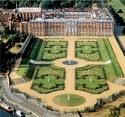
1694 The more you know about ED, the more you'll want to know about what? On Apr. 27 Johann Georg IV (b. 1668) dies 23 days after contracting smallpox from his taboo dead (Apr. 14) mistress (his own illegitimate daughter?) Magdalena Sibylla von Rochlitz of Neidschutz (b. 1675) (his own illegitimate daughter, whom his daddy forced to put aside for Eleonore Erdmuthe of Saxe-Eisenach, whom he later tries to murder, but is prevented by his younger brother Frederick the Strong, who strongly blocks the sword with his hand at the Venice Carnival, causing him a lifelong handicap), leaving no male heir, only illegitimate Wilhelmina Maria Fryderyka (Frederica), Countess von Rochlitz (1693-1730) by Magdalena, whose godparents are the king and queen of England), and his lucky younger brother Frederick the Strong becomes Saxon elector Frederick Augustus II "the Strong" (1670-1733) until 1733, going on to turn Dresden into a major cultural center and build up fantastic Baroque palaces there and later in Warsaw, while wowing people with his great natural strength - the original Arnold Strong, Hercules in Dresden? On July 18 a force of Indians under command of a French soldier massacre about 100 settlers on Oyster River in SE N.H.; an attack on Groton follows on July 27. On July 27 the Bank of England on Threadneedle St. in London is chartered, becoming England's first central bank, lending the govt. £1.2M to finance William III's French wars in exchange for special privileges, and becoming known as the Old Lady of Threadneedle Street; it becomes a model for most modern banks; Fleet St. ends up as the newspaper street. On July 29 Suleiman I (b. 1647) dies of alcoholism and/or gout, and his dwarf (under 3.5'-tall) elder son Soltain (Sultan) Hussein (Hussain) (Husayn) (1668-1726) becomes Safavid shah of Persia (until 1722), appointing Shiite cleric Muhammad Baqir al-Majlisi (1616-89) as the first head mullah (mulla bashi), who goes on to work to eradicate Sunnis, Sufis, Zoroastrians, Jews, and pesky Christians, and build up the power of the Shiite clergy, making it virtually independent of the ruling govt. - Iran's name is now Shiite? On Aug. 15 colonial delegates in Albany sign a treaty with the Iroquois to keep them from siding with the French. On Dec. 22 the Triennial Act provides for a new parliamentary election in England and a parliamentary meeting every third year. On Dec. 28 Queen Mary II (b. 1662) dies, causing her hubby William III to mope for months, ruling England and Scotland alone by his right of succession (not that Mary ever got involved in govt. anyway?); he reconciles with Prince George and Princess Anne, who had developed a rivalry with him and Mary, giving Anne "most of her sister's jewels", and hoping her young son Prince William, Duke of Gloucester (1689-1700) will survive Jacobite threats and be groomed for the throne, only to see him croak at age 11. The English and Dutch fleet bombard Dieppe and virtually destroy it, also Le Havre and Dunkirk. Penn. reverts to William Penn's propietorship. Ranuccio II dies, and his sons Francesco I Franese (1678-1727) and Antonio Farnese (1679-1731) succeed him as dukes of Parma and Piacenza. Up-and-coming Francis Nicholson becomes British gov. of Md. (until 1699), moving the state capital from St. Mary's to Anne Arundel, which is renamed Annapolis in honor of Princess (later queen) Anne. England doubles the salt tax, and eliminates town monopolies on textile production, opening it to the rural working class (cottage industry). German pietist mystic Johannes Kelpius (1673-1708) settles his band of intellectual monks in the wilderness surrounding Philly, believing that the world will end this year. Sophia Dorothea of Celle (1666-1726), cousin-wife of George Louis of Hanover (future George I of Britain), whom she detests and calls "pig snout" like everybody else, but was forced into the marrage by Duchess Sophia for her 100K thalers a year dowry, is caught having an affair with love of her life Philip Christoph von Konigsmark (b. 1665), giving Pig Snout his excuse to imprison her in Ahlden, Germany for life (until 1726); meanwhile Konigsmark is killed after trying to help her escape from Hanover; she was only platonic friends with him and was framed? The British East India Co. acquires monopoly trading rights in Canton, China (until 1834). Elephant tokens are used to promote the Carolina Colony. The U. of Halle in Germany is founded. The body of St. Francis Xavier (d. 1554) is proclaimed to be still undecayed by visiting Jesuit Joseph Simon Bayard: "...the cheeks had a vermillion hue, the tongue was red and moist". The word "crumpet" is first used in England. The quasi-Pantheist Philadelphian Society for the Advancement of Piety and Divine Philosophy in London, England is founded by Christian mystic Jane Warde Lead (1624-1704). Architecture: Sir Christopher Wren's Hampton Court Palace (begun in 1682) is finished, and in 1696 he begins building Greenwich Hospital (Royal Naval Hospital) (finished in 1715). Johann Bernhard Fischer von Erlach begins building Castle Schonbrunn, which is finished by Nikolas Pacassi. Science: In 1694 German botanist Rudolph Jacob Camerarius (1665-1721) discovers the function of plant pollen. French scientist Charles Renaldi introduces the thermometer calibration points of the boiling point of water and melting point of ice. Nonfiction: Mary Astell (1666-1731), A Serious Proposal to the Ladies for the Advancement of Their True and Greatest Interest (London); followed by "A Serious Proposal, Pt. II" in 1697; proposes that women be given religious and secular education in a nunnery type environment, causing it to be rejected as "too Catholic". Rudolf Jakob Camerarius (1665-1721), De Sexu Plantarum Epistola (Of the Reproductive Organs of Plants). Charles Davenant (1656-1714), An Essay on the Ways and Means of Supplying the War; attacks long-term borrowing as detrimental to trade; disses land taxation as inequitable, i.e., a threat to the landed gentry. William Fleetwood (1656-1723), A Sermon Against Clipping. Academie Francaise, Dictionnaire de l'Academie Francaise (1st ed.) (2 vols). Johann Ernst Gluck (1654-1705), The Bible in Latvian; first trans. into Latvian, by a German pastor who had to learn the language for the job, along with Hebrew and Greek; begun after receiving royal permission from Charles XI in 1681 and appointment as pastor to Aluksne, and finished in 1689; takes five years of govt. B.S. to get it officially released. Jane Lead, The Enochian Walks with God. Jan Luyken (1649-1712), Book of Trades. Pierre Pomet (1658-99), A Compleat History of Drugs; the English ed. of 1712 incl. additions by French chemist Nicholas Lemery (1645-1715). Joseph Pitton de Tournefort (1656-1708), Elements de botanique, ou Methode pour reconnaitre les Plantes (Eléments de botanique, ou Méthode pour reconnaître les Plantes); illustrations by French artist Claude Aubriet (1651-1742); becomes a hit despite shortcomings incl. failing to separate monocots from dicots, and phanerogams from cryptogams, making a clear distinction between genus and species, dividing 7K plant species into 700 general (paving the way for Carl Linnaeus?), coining the term "herbarium". Music: Francesco Gasparini (1661-1727), Roderico (Rome). Reinhard Keiser (1674-1739), Cephalus and Procris (opera) (Braunschweig). Art: Sir Godfrey Kneller (1646-1723), Ten Hampton (William III) Court Beauties. Plays: William Congreve (1670-1729), The Double Dealer (comedy). Peter Anthony Motteux (1663-1718), The Rape of Europa by Jupiter; music by John Eccles. Poetry: Matsuo Basho (1644-94), Oku No Hosomichi; haiku. Births: Italian Roman Catholic Passionist priest (St.) Paul of the Cross (Paul Francis Daneii) (d. 1775) on Jan. 3 in Ovada, Genoa; feast day: Apr. 28/Oct. 19. Anglo-Irish architect ("the Architect Earl") ("the Apollo of the Arts") Richard Boyle, 3rd Earl of Burlington, 4th Earl of Cork (d. 1753) on Apr. 25 in Yorkshire; son of Charles Boyle, 2nd earl of Burlingtonand Juliana Noel (1672-1750). Austrian painter Daniel Gran (d. 1757) on May 22 in Vienna. French political economist (personal physician to Louis XV) Francois Quesnay (d. 1774) on June 4 in Mere; founder of the physiocratic (it's all about the land) school of political economy. Scottish philosopher Rev. Francis Hutcheson (d. 1746) on Aug. 8 in County Down, Ireland; educated at the U. of Glasgow; postulates a moral sense, and advocates calm benevolence over simple self-interest; coiner of the phrase "The greatest happiness for the greatest number." English Chesterfieldian statesman-author Philip Dormer Stanhope, 4th Earl of Chesterfield (d. 1773) on Sept. 22 in London; educated at Cambridge U. Scottish anti-Jacobite nobleman Archibald Douglas, 1st Duke of Douglas (d. 1761) on Oct. 15; 2nd son of James Douglas, 2nd marquess of Douglas (1646-99). Swedish Baroque composer Johan Helmich Roman (d. 1758) on Oct. 26 in Stockholm. French Rationalist Deist philosopher-writer (Freemason) ("the Soul of the Enlightenment") Voltaire (Francois-Marie Arouet) (d. 1778) on Nov. 21 in Paris; educated by Jesuits at the College Louis-le-Grand; after his incarceration in the Bastille, Arouet adopts the nom de plum of Voltaire, an anagram of Arovet li, the Latinized spelling of his surname Arouet plus "le jeune" (the younger), the reverse pronunciation echoing his family chateau Airvault in Poitou; it suggests volte-face, voltige (acrobatics), and volatile (winged creature), separating himself from rouer (to be broken on the wheel) and roue (debaucher); dedicates himself to the elimination of "this infamous superstition", Christianity - shocking? British gov. of Mass. (1741-59) William Shirley (d. 1771) on Dec. 2 in Sussex. German Enlightenment philosopher (Deist) (founder of Biblical Higher Criticism) Hermann Samuel Reimarus (d. 1768) on Dec. 22 in Hamburg; educated at the U. of Jena. Deaths: French astronomer Ismail Bouillaud (b. 1604) on Nov. 25. French Jansenist theologian Antoine "the Great" Arnauld (b. 1612) on Aug. 6. Indonesian Muslim reformer Abd al-Ra'uf al-Sinkili (b. 1615) in Kuala Aceh. French artist Pierre Puget (b. 1620) on Dec. 2 in Marseille. Italian physician Marcello Malpighi (b. 1628) on Dec. 30 in Rome. German thinker Samuel von Pufendorf (b. 1632) on Oct. 13 in Berlin (stroke). Polish nobleman-diplomat Jerzy Franciszek Kulczycki (b. 1640) on Feb. 19. Japanese poet Matsuo Basho (b. 1644) on Nov. 28 in Otsu; has 2K students; "Fallen sick on a journey/ In my dreams I run wildly/ Over a withered moor". Persian shah (1667-94) Suleiman I (b. 1647). English queen (1689-94) Mary II (b. 1662) on Dec. 28 (smallpox). German elector of Saxony (1691-4) Johann Georg IV (b. 1668) on Apr. 27 in Dresden; dies 23 days after his babe Magdalene Sybille dies of smallpox and infects him.
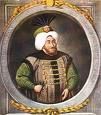


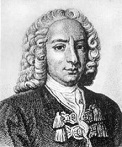





1695 On Jan. 4 French marshal Francois-Henri de Montmorency, duc de Luxembourg (b. 1628) dies, and is succeeded as CIC of the French army by marshal Francois de Neufville, Duke de Villeroy (1644-1730). On Feb. 6 sultan (since 1691) Ahmed II (b. 1643) dies after being worn out by his empire's troubles, and his nephew Mustafa II (1664-1703) succeeds him as Ottoman sultan #22 (until Dec. 8, 1703). In May William III begins serving with his army in Holland, and in Sept. takes Namur. Between Sept. 7 of this year and 1728 the Irish parliament passes a series of mean and spiteful penal laws oppressing Catholics; the underground Irish hedge schoolmasters become the dominant educators in Ireland. In Sept. William III recaptures Namur. In Nov. MP Charles Davenant (1656-1714) reads Memorial Concerning the Coin of England to the Privy Council, arguing against the majority party's proposal to devalue English coinage to pay for the war with France. Frederick Augustus I commands the imperial army against the Turks. William III attempts to placate the Scots for the slip-up at Glencoe and lets them establish their own Co. of Scotland Trading to Africa and the Indies, AKA the Darien Co. to trade with Africa, the Americas and the Indies, with their own trading post at the Isthmus of Darien in C Am., ending the prohibitions on direct trade with the English colonies by the English Navigation Acts that had kept them down; the Royal Bank of Scotland is founded, and the Darien Co. absorbs 25% of Scotland's liquid capital; on June 26 it attempts to found a Scottish colony in Panama, sending out 2K colonists in 1699; too bad, Spain claims the area, and William won't let other English colonies in the Caribbean aid them for fear of Spain allying with France against him, and it lasts under Spanish attack, bad soils and disease until 1707 before final collapse. Peter I the Great fails to take Azov, and returns to Moscow, deciding that to take it he needs to build the special Azov Fleet, which begins next year after he becomes sole tsar (until 1700), with its prize being 34-gun frigate Apostle Peter; in 1697 he visits Zaandam in Holland disguised as a common sailor to learn shipbuilding, later designing the Russian flag based on the Dutch tricolor flag. Outey I becomes king of Cambodia (until 1699). After French economist Pierre Le Pesant, Sieur de Boisguillebert (Boisguilbert) (1646-1714) pub. a plea for change titled Le Detail de la France; la Cause de la Diminution de ses Biens et la Facilite du Remede, containing the first notion of an economical market and becoming the first economist to question the economic policy of mercantilism and value the wealth of a country by its production and exchange of goods instead of the amount of money it has, new (since 1695) Cambrai archbishop Francois de Salignac de la Mothe Fenelon (1651-1715) writes a letter to Louis XIV's pillow mate Francois d'Aubigne (d'Aubigné), Marquise de Maintenon (1635-1703) arguing for an end to Colbert's mercantilist (I win, you lose) system along with Louis' wars and protectionism in favor of win-win free enterprise, free trade, and progressive taxation; Louis bites a little and introduces the capitation, the first graduated tax. The English govt. ends press censorship, causing a flood of pamphlets, newspapers and political tracts - just check that attitude? England passes a window tax (ends 1851) - insures London will be full of ghetto fabulous folks forever holding their piece? England begins taxing marriages, births and widowers, and fines profane swearing. Scottish-born Robert Livingston the Elder (1654-1728), lord of the little ole 160K-acre Livingston Manor in Albany, N.Y. becomes secy. of British Indian affairs. Capt. William Kidd goes to London on business, and is given a commission by William III to fight pirates in the Indian Ocean; after his expedition is financed by private citizens, he sails next Apr. The town of Pleasantville, N.Y. starts when French Huguenot Isaac See settles on Iroquois land as an agent for Dutch landowner Frederick Philipse, attracting Dutch, English, and Quaker settlers, becoming known as the place where British spy Maj. John Andrew is captured in nearby Tarrytown, N.Y. carrying info. from Benedict Arnold in Ft. Clinton to the British in New York City after losing his bearings in Pleasantville; in 1846 the New York Cental Railroad and New York and Harlem Railroad arrive, after which it becomes a stop on the Underground Railroad; it goes on to become the 1940s-1950s home of writers Dashiell Hammett and Lillian Hellman (Hardscrabble Farm), Reader's Digest founders DeWitt and Lila Bell Wallace, rock promoter Bill Graham, and singer Tina Turner. Apostolo Zeno (1668-1750) of Venice composes his first libretto, Gli Inganni Felici, making him a star, going on to write 35 more. The first mention of St. Bernard dogs at the hospice of St. Bernard in the Great St. Bernard Pass (8114 ft.) above the town of Martigny is made. The term "flip" is coined to describe a mixture of beer, rum, and sugar, heated with a red-hot iron to make it froth or flip up; later, eggs are added. Don Saltero's Coffee House and Curiosity Museum is founded in Chelsea, London by James Salter, who fills it with weird taxidermy (crocodiles, turtles, snakes) from the collection of scientist Sir Hans Sloane (1660-1753), making fans of Sir Isaac Newton and Benjamin Franklin. Architecture: Sir Christopher Wren designs Morden College in Blackheath, London. Inventions: Eau de Cologne is invented by Italian immigrant Giovanni Paolo de Feminis at 4711 Glockengasse in Cologne, Germany. Science: French physicist Guillaume Amontons (1663-1705) invents the pendant barometer, and improves the thermometer for use at sea; in 1699 he pub. his rediscovery of the laws of friction first proposed by Leonardo da Vinci, and he is pooh-poohed until Charles-Augustin de Coulomb verifies them in 1781. Nehemiah Grew isolates magnesium sulfate (Epsom salts) from water taken from North Downs springs in you know where. Edmund Halley discovers the periodicity of comet orbits. Flemish physician Franz de le Boe (1614-72) becomes the first to discover a causal connection between tubercules and the disease of TB. Nonfiction: Pierre Le Pesant, Sieur de Boisguillebert (1646-1714), La Detail de la France; calls on France to switch from Colbert's mercantilism to free enterprise to cure its problems with famine and poverty. Friedrich Hoffmann, Fundamenta Medicinae. Jane Lead, The Laws of Paradise. John Locke (1632-1704), The Reasonableness of Christianity As Delivered in the Scriptures. Gottfried Michael, Cosmographia; incl. a Map of Moscow. William Salmon, The Household Companion; promotes the eating of the newfangled potatoes. John Woodward, Essay Toward a Natural History of the Earth and Terrestrial Bodies. Music: Henry Purcell (1659-95), The Indian Queen (opera). Agostino Steffani (1653-1728), I Trionfi del Job (opera) (Hanover); I Baccanali (opera) (Hanover). Plays: William Congreve (1670-1729), Love for Love (comedy) (Lincoln's Inn Fields, London) (Apr. 30); opens at Lincoln's Inn Fields, a new theater which he becomes mgr. of.; Valentine, his resourceful servant Jeremy, Sir Sampson (known for "blunt vivacity"), rough young sea-dog Ben, Miss Prue and her half-wit beau Tattle, who ends up married to Mrs. Frail, Angelica, and gullible old astrologer Foresight; contains the immortal soundbyte: "You must not kiss and tell." Peter Anthony Motteux (1663-1718), The Loves of Mars and Venus. Novels: Anon., The Secret History of the Most Renowned Queen Elizabeth and the Earl of Essex, by a Person of Quality; has the story of the ring in more detail than the 1620 John Webster work. Nikolaes Heinsius, Den Vermakelijkten Avonturier (picaresque). Births: British gen. (CIC of British forces in Am., 1754-5) Edward Braddock (d. 1755) in Jan. in Perthshire, Scotland; son of maj. gen. Edward Braddock (-1725) of the Coldstream Guards. Swiss mathematician Nicolaus II Bernoulli (d. 1726) on Feb. 6 in Basel; son of Johann Bernoulli (1667-1748); brother of Daniel Bernoulli (1700-82). Mexican Mestizo painter Miguel Mateo Maldonado y Cabrera (d. 1768) on Feb. 27 in Oaxaca; an orphan, he is caught fixing up a painting by his master Juan Rodriguez Jarez in 1719 by Archbishop Manuel Rubio y Salinas, who makes him his personal painter; known for his casta paintings depicting interracial marriage. German poet Johann Christian Gunther (d. 1723) on Apr. 8 in Striegau, Lower Silesia. French Pitot Tube physicist Henri Pitot (d. 1771) on May 3 in Aramon, Gard. (d. 1719) on Aug. 20 in Versailles; daughter and eldest surviving child of Philip II of Orleans (1674-1723) and Francoise Marie (1677-1749), illegitimate daughter of Louis XIV. Italian composer-violinist Pietro Antonio Locatelli (d. 1764) on Sept. 3 in Bergamo. Scottish nonconformist clergyman (Glasite sect founder) John Glas (d. 1773) on Oct. 5 in Auchtermuchty, Fife; educated at the U. of St. Andrews. Scottish jurist John Erskine of Carnock (d. 1768) on Nov. 4. English astronomer John Bevis (d. 1771) on Nov. 10 in Salisbury, Wiltshire; discoverer of the Crab Nebula in 1731. Dutch artist Jacob de Wit (d. 1754) on Dec. 19 in Amsterdam; pupil of Albert van Spiers and Jacob van Hal; teacher of Jan Punt, Jan de Groot, Piete Tanje, Frans Xavery, and Jacob Xavery; known for door and ceiling paintings in the Keizersgracht in Amsterdam. French noblewoman ("the French Messalina") Marie-Louise Elisabeth of Orleans, Duchess of Berry German Baroque painter Elias Gottlob Haussmann (d. 1774) in Gera; son of Elias Haussmann (1663-1733); court painter of Dresen, and official portraitist of Leipzig (1720-); known for his 1746 portrait of J.S. Bach. Deaths: French painter Pierre Mignard (b. 1612) on May 30 in Paris. French poet Jean de La Fontaine (b. 1621) on Apr. 3 in Paris. Welsh poet Henry Vaughan (b. 1621) on Apr. 23 in Scethrog by Usk, Brecknockshire. English writer Dorothy Osborne (b. 1627). French marshal Francois Henri de Montmorency-Bouteville, duke of Luxembourg (b. 1628). Dutch scientist-mathematician Christian Huygens (b. 1629) on July 8 in The Hague. Dutch painter Melchior d'Hondecoeter (b. 1636) on Apr. 3 in Amsterdam. Italian musician Giovanni Paolo Colonna (b. 1637) on Nov. 28 in Bologna. Ottoman sultan (1691-5) Ahmed II (b. 1643) on Feb. 6. Mexican feminist Sor Juana Ines de la Cruz (b. 1648). English explorer and treasure hunter Sir William Phips (b. 1651) on Feb. 18. English Westminster Abbey organist-composer Henry Purcell (b. 1659) on Nov. 21 in Westminster; composed music for 40+ plays.


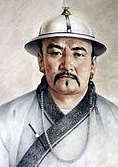

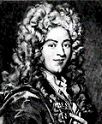
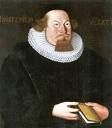


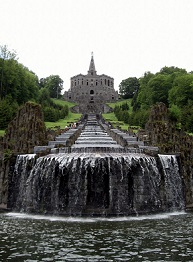
1696 The pop. of England is 5.5M, of which 4M live in the country; agriculture still dominates over industry, whose workers still mainly live in rural areas. On Feb. 8 tsar (since 1682) (Jan. 29 Old Style) Ivan V (b. 1666) dies, leaving his younger half-brother Peter I the Great (1672-1725) as sole Russian tsar (until Feb. 8 1725), going with his big plans to take the Ottoman Black Sea port of Azov along with its fortress, sending 50 young Russians to England, Holland, and Venice to study shipbuilding and fortifications. In Feb. a Jacobite plot to assassinate William III is discovered, causing the Nat. Loyal Assoc. to be formed to protect him; the Habeas Corpus Act is suspended - it's my corpus or yours now? On June 12 the Battle of Jao Modo (Zuunmod) (Hundred Trees) on the Upper Terelj River 37 mi. E of modern-day Ulaanbattar sees a 30K-man Dzungar-Mongol army under well-educated Buddhist Galdan Boshugtu Khan (1644-97) defeated by a 50K-man Qin army under the personal command of the Kangxi Emperor, pushing the Dzungar Mongols to Inner Asia until their final defeat in 1758. On Aug. 29 Louis XIV France and Duke Victor Amadeus II of Savoy sign the separate Treaty (Peace) of Turin, a separate peace, restoring all conquests to the duke in return for leaving the anti-French Grand Alliance of 1689 and bethrothing his daughter to Louis XIV's grandson the duke of Burgundy and promising to remain neutral; elector Frederick Augustus I of Saxony is replaced as CIC of the imperial army by Prince Eugene of Savoy (1663-1736), cousin of the duke of Savoy. On Nov. 1 Penn. adopts the Third Frame of Government, written by William Markham. John Locke and Isaac Newton supervise the new coinage in England. Hatter journeymen strike in England. The French in Canada under Comte de Frontenac decisively defeat the Iroquois. Why do Britain's colonies ultimately go renegade? The Navigation Act of 1696 puts the screws on the colonies by requiring colonial governors to enforce all Navigation Acts, and puts violators in front of admiralty courts with judges appointed by the governors, with no juries. William III creates the Board of Trade and Plantations to replace the Lords of Trade and Plantations in an effort to bring harmony among the many central organs through which the crown exercises executive control of its empire; it soon seems to be in control of the colonial business, but suffers from lack of ability to compel obedience to its advice, only to make recommendations to the committee of the privy council; the secy. of state for the southern dept., the secy. concerned with colonial affairs, is ex officio a member of this board as well as a member of the committee of the privy council charged as the chief admin. official to make it all work, but usually doesn't bother; in practice the purpose of the board is to encourage the colonies to produce raw materials and keep out of manufacturing; it eventually gets the crown to disallow 469 colonial laws it doesn't like; after 1725 it is defanged by PM Robert Walpole. The first English property insurance co. is founded. The Berlin Academy of Arts (Kunstakademie Berlin) is founded in Berlin, Germany by Elector Frederick II of Brandenburg and the Prussian Academy of Arts. Nahum Tate and Nicholas Brady update the Bay Psalm Book. Sir Isaac Newton becomes warden of the Royal Mint, becoming instrumental in fixing the gold standard. English East India Capt. Shaddock introduces the pomelo (shaddock) (shattuck) (Citrus maxima) to Jamaica from Polynesia. Science: In June Swiss mathematician Johann Bernoulli pub. the Brachistochrone Problem (Br. "brakistos kronos" = shortest time) in Acta Eruditorum, the curve of fastest descent between two points, with the soundbyte: "Given two points A and B in a vertical plane, what is the curve traced out by a point acted on only by gravity, which starts at A and reaches B in the shortest time"; Bernoulli takes two weeks to solve it , incorrectly, and ends up using his brother Jakob's correct solution in the May 1697 ed. of the mag.; meanwhile after receiving a letter from Leibniz with the problem on Jan. 29, 1697 (4:00 p.m.) and staying up all night, Isaac Newton sends the solution anonymously to Bernoulli, who immediately recognizes him, with the soundbyte that he "recognizes a lion from his claw mark", to which Newton utters the soundbyte: "I do not love to be dunned and teased by foreigners about mathematical things." French botanist-monk Charles Plumier (1646-1704) first describes the Fuchsia genus of flowering plants that he discovered; named after German botanist Leonhart Fuchs (1501-66). English naturalist John Ray (1627-1705) first describes the aromatic herb peppermint - and how it goes good with chocolate? Nonfiction: Nicolas Antonio, Bibliotheca Hispana Vetus. John Bellers, Proposals for Raising a College of Industry; education of children. John Dennis (1657-1734), Letters upon Several Occasions written by and between Mr. Dryden, Mr. Wycherley, Mr. Moyle, Mr. Congreve and Mr. Dennis, pub. by Mr. Dennis. Michael Geddes (1650-1713), The Church History of Ethiopia: Wherein, Among Other Things, the Two Great Splendid Roman Missions into That empire are Placed in Their True Light. Jean Hardouin (1646-1729), Chronologiae ex Nummis Antiquis Restitutae - it takes a con to know one? Guillaume de L'Hôpital (Hopital) (1661-1704), L'Analyse des Infiniment Petits pour l'Intelligence des Lignes Courbes; first textbook on infinitesimal calculus, based on lectures by his teacher Johann Bernoulli (1667-1748); incl. L'Hopital's (L'Hospital's) Rule for solving the indeterminate form 0/0 through repeated differentiation - send it to the differential hospital? William Nicolson, The English Historical Library (3 vols.) (1696-99). Melchisedec Thevenot (1620-92), The Art of Swimming (posth.); popularizes the breaststroke; read by Benjamin Franklin. William Whiston (1667-1752), A New Theory of the Earth from its Original to the Consummation of All Things; defends the Biblical account of Creation, with the soundbyte: "The Mosaic Creation is not a nice and philosophical account of the origin of all things; but a historical and true representation of the formation of our single Earth out of a confused Chaos, and of the successive and visible changes thereof each Day, till it became the habitation of mankind"; he claims that the Biblical Flood was caused by a comet hitting the Earth; too bad, he pushes Arianism, pissing-off most Christians, esp. Roman Catholics, while making fans of Isaac Newton and John Locke. Music: Giuseppe Aldrovandini (1665-1707), Dafni (opera). Giacomo Carissimi (1604-74), Ars Cantandi (posth.). Johann Kuhnau (1660-1722), Frische Clavier-Fruchte, oder Sieben Suonaten; the sonata arrives? Agostino Steffani (1653-1728), Briseide (opera) (Hanover); libretto by Cristoforo Palmierei. Plays: Colley Cibber (1671-1757), Love's Last Shift; the first sentimental comedy. Colley Cibber (1671-1757), Love's Last Shift; or, The Fool in Fashion (comedy); the last sentimental comedy?; backs off some from aristocratic intellectualism and sexual frankness while trying to have something for everybody; Sir William Wisewould, Loveless, his servant Snap, Sir Novelty Fashion (Cibber), Elder and Young Worthy, and his servant Sly; free-living rake Loveless leaves London for his wife Amanda, hanging out in whorehouses, then returns and no longer recognizes her, causing her to pretend to be a high-class ho and give him the night of his dreams, after which she reveals her identity and he immediately reforms. Sir John Vanbrugh (1664-1726), The Relapse, or Virtue in Danger (comedy) (Drury Lane, London) (Nov.); sequel to Colley Cibber's "Love's Last Shift; or, The Fool in Fashion" (1696); the supposedly reformed rake Loveless gets in a new love affair with widow Bernithia, while his wife Amanda becomes the target of a seduction attempt by Worthy, which she barely resists; last true Resotration comedy?; stars Cibber as Lord Foppington (formerly Sir Novelty) ("very industrious to pass for an ass", "a mwn who Nature has made no fool" - Amanda), who is tricked by his younger brother Tom out of his fiance and her large dowry; a big hit, immortalizing foppery; bowlderized by Richard Brinsley Sheridan as "A Trip to Scarborough" (1777). Peter Anthony Motteux (1663-1718), Love's a Jest; She Ventures and He Wins. Jean-Francois Regnard (1655-1709), Le Joueur (comedy). Thomas Southerne, Oroonoko (tragedy). Poetry: Peter Dass (1647-1708), Valley Song. Matthew Prior (1664-1721), Elegy on Queen Mary. Novels: Christian Reuter, Schelmuffsky. Births: Italian painter-printmaker Giovanni Battista (Gianbattista) (Giambattista) Tiepolo (d. 1770) on Mar. 5 in Venice; #1 decorative painter of 18th cent. Europe. French marshal (1748-) Louis Francois Armand de Vignerot du Plessis, Duc de Richelieu (d. 1788) on Mar. 13 in Paris. Ottoman sultan #24 (1730-54) Mahmud I (d. 1754) on Aug. 2 in Edirne Palace; son of Mustafa II (1664-1703); brother of Osman III (1699-1757). French opthalmologist (inventor of cataract surgery) Jacques Daviel (d. 1762) on Aug. 11. English "Lord, let me know mine end" composer-organist Maurice Greene (d. 1755) on Aug. 12 in London. Italian Roman Catholic theologian (St.) Alphonsus di (Alfonso Maria de) Liguori (d. 1787) on Sept. 27 near Naples. Am. educator Samuel Johnson (d. 1772) on Oct. 14 in Guilford, Conn.; educated at Yale U.; first pres. of King's College (Columbia U.) 1754-63; not to be confused with English lit. critic Samuel Johnson (1709-84). German Albertine Wettin elector of Saxony (1733-63), and Polish king and grand duke of Lithuania (1734-63) Augustus III (Frederick Augustus II) (the Corpulent) (d. 1763) on Oct. 17 in Dresden; only son of Augustus II (1670-1733) and Christiane Eberhardine of Brandenburg-Bayreuth (1671-1727); father of Maria Amalia of Saxony (1724-60); converts to Roman Catholicism in 1712, pissing-off the Protestant Saxon aristocracy. French marshal Maurice Saxe, Comte de Saxe (d. 1750) on Oct. 28 in Goslar; son of Augustus II the Strong of Saxony (1670-1733) and Countess Maria Aurora of Konigsmarck (1662-1728). English Georgia Colony founder Gen. James Edward Oglethorpe (d. 1785) on Dec. 22 in Godalming, Surrey; educated at Corpus Christi College, Oxford U.; emigrates to the U.S. in 1732. French Protestant reformer Antoine Court (d. 1760) in Villeneuve de Berg, Languedoc. Am. N.H. gov. #1 Benning Wentworth (d. 1770); namesake of Bennington, Vt. Russian Maj. Gen. Abraham (Ibrahim) Petrovich Gannibal (Hannibal) (d. 1781) in Africa; kidnapped from a royal tribal family at age 8, adopted by Peter I the Great, becomes the first black European intellectual; he becomes the great-great-grandather of poet Alexander Pushkin (1799-1837), who calls him the "Black Knight". Scottish "Sketches of the History of Man" Enlightenment judge-philosopher Henry Home, Lord Kames (d. 1782) in Kames House, between Eccles and Birgham, Berwickshire; patron of David Hume, Adam Smith, James Boswell, William Cullen, and John Walker. Deaths: French explorer Medart Chouart de Groseilliers (b. 1618). Japanese emperor #109 (1629-43) Meisho (b. 1624) on Dec. 4. Polish king (1674-96) Jan III Sobieski (b. 1624) on June 17 (apoplexy). French philosopher Jean Domat (b. 1625) on Mar. 14. Polish poet Waclaw Potocki (b. 1625). French court gossip Marie de Rabutin-Chantal, Marquise de Sevigne (b. 1626) on Apr. 17 in Grignan; her 30-year Correspondence with Daughter Madame de Grignan is pub. in 1725 (28 letters), followed by 1734-7 (614 letters), and 1754 (772 letters). French scientist Jean Richer (b. 1630). German field marshal Hans Adam von Schoening (b. 1641) on Aug. 28. French essayist-moralist Jean de La Bruyere (b. 1645) on May 10; dies of apoplexy soon after admission to the French Academy. Russian tsar (1682-96) Ivan V the Ignorant (b. 1666) on Feb. 8 (Jan. 29 Old Style).






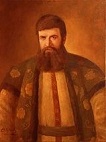





1697 On Jan. 8 Scottish medical student Thomas Aikenhead (b. 1676) becomes the last person to be executed for blasphemy in Britian; he is accused of rejecting the Trinity, and having "preferred Mahomet to the blessed Jesus". On Apr. 5 Swedish king (since 1660) Charles XI (b. 1655) dies, and his 15-y.-o. son Charles (Karl) XII (1682-1718) becomes Wittelsbach king #4 of Sweden in 1698 (until 1718) after a 1-year probation. On Sept. 11 the imperial army under Prince Eugene of Savoy, the non-white man's worst nightmare kicks Turkish butt bigtime at the Battle of Zenta (Senta), ending the Great Austrian-Turkish War (begun 1683); once again Hungarian flip-flopper Imre Thokoly fights for the Turks against the Austrians - the Prisoner of Zenta? On Sept. 20 King William's War (War of the Grand Alliance) (War of the League of Augsburg) (begun 1689) between France and the Grand Alliance of England, Spain, and the Netherlands ends with the Treaty of Ryswick between France, England, Spain, and Holland, confirming the separate peace with Savoy, restoring all conquests (changing no boundaries), and giving Louis XIV's recognition to William III as king of England and Princess Anne as heir presumptive, promising not to aid William's enemies, which provides a little breathing space before Queen Anne's War in 1702?; the chief fortresses on the French frontier in the Spanish Netherlands are garrisoned with Dutch troops as a buffer; Holland restores Pondicherry, India to the French East India Co. in return for commercial privileges; on Oct. 30 after France reneges on restoring all conquests since 1678, reserving 82 places that had been "reunited" with Spain by the Treaties of Nimwegen (1678-9), it signs another treaty with the HRE ceding all of them except Alsace in return for receiving Strasbourg (until 1871) (known for tasty pate de foie gras), and ceding Freiburg and Breisack to the emperor and Phillipsburg to the empire; the king of Sweden gets Zweibrucken back, and becomes Count Palatinate of the Rhine; Lorraine is restored to Duke Leopold, except for Saarlouis; Cardinal Furstenburg's claims on the archbishopric of Cologne are disallowed; the Rhine is made free; the independence of Savoy is recognized, and Savoy defects from the Grand Alliance, freeing a French army and taking a load off England and its allies; France's rep. as the greatest power in Europe is shaken but not completely demolished, as it nourishes a fair prospect of uniting with Spain after doddering Charles II kicks the canasta?; meanwhile the cause of the Jacobites will have to wait for James II's son and grandson. On Sept. 25 the Bishops' Banishment Act requires most Roman Catholic clergy to leave Britain by May 1, 1698. In Nov. Ravi Varma dies, and Rama Varma IV (d. 1701) becomes king of Cochin (until 1701) - sounds like deja vu? Elector Frederick Augustus I of Saxony converts to Roman Catholicism then succeeds Jan III Sobieski (b. 1696) as king of Poland under the name Augustus II the Strong (1670-1733), soon becoming the most dissolute ruler in Europe; Polish independence virtually ends. China conquers W Mongolia, which is incorporated into Qing territory with military colonies established; Galdan poisons himself. The Sunni Muslim Chehab (Shihab) Dynasty in Lebanon is founded (ends 1842), converting to Marionite Christianity at the end of the 18th cent. and consolidating their hold around Mt. Lebanon. Peter I the Great sets off on an incognito (under the name Peter Michailoff) 18-mo. trip through Prussia, Denmark, Holland, England, and Austria to study Western ways of life, taking numerous classes that make him a jack of all trades incl. dentistry, becoming the first Russian monarch to visit the West - the original royal hayseed in the city joke? The French under Jean Bourguignon and Andre Brue attempt to colonize West Africa with the Royal Co. of the Senegal (Compagnie Royale du Senegal) - bring plenty of suntan lotion? Siberian Cossack explorer Vladimir Vasilyevich Atlasov (Otlasov) (1661-1711) explores the Kamchatka Peninsula in the Sea of Okhost for Russia, discovering 7,674-ft. perfect cone-shaped Atlasov Island and 15,580-ft. near-perfect cone-shaped Klyuchevskaya Volcano (Sopka) (one of 30), the largest active volcano in Eurasia, having over 600 eruptions by the year 2000, and whose base is known as the Valley of Death because of the poisonous gases. The Spanish destroy the last remains of the Maya civilization in Yucatan. The Huron village of Lorette on the St. Charles River 7 mi. WNW of Quebec near the Falls of Lorette is founded, later becoming Quebec suburb of Loretteville. A 10-year overstock in beaver pelts causes the French to close many American forts - there's a baudy joke in there somewhere? The Bank of England charter is renewed until 1711. English Anglican clergyman Henry Maundrell (1665-1701), chaplain to the Levant Co. in Syria since Dec. 20, 1695 makes an Easter pilgrimage to Jerusalem, later pub. Journey from Aleppo to Jerusalem at Ester A.D. 1697 in Oxford, which becomes a minor travel classic. The word English word "dungarees" is coined for thick country-made cloth from Ft. Dongari Killa in Bombay, India. The sedan chair becomes a popular means of transportation. After failing to capture any prizes, Capt. William Kidd's crew mutinies in Madagascar, and persuades him to join them, and they turn to piracy, seizing many merchant ships, incl. the Armenian vessel Quedagh Merchant. Architecture: The 70.5m-tall Hercules Monument in Kassel, N Hesse, Germany is begun by Landgrave Karl of Hesse-Kassel, with a pyramid on top of an octagon topped by a copper statue of Hercules (Heracles), built in 1707-17; on June 3, 1714 the water stairs (cascade) debut. The King's Highway Bridge is built in Philadelphia, Pann., becoming the oldest railway bridge in continuous use in modern times. London's Whitehall Palace, the seat of English royal power and politics since 1530 burns down; Hans Holbein the Younger's 1535 portrait of Henry VIII is lost; the 1532 red-brick Tudor-style St. James's Palace on Pall Mall in Westminster, London (N of St. James's Park) becomes the English royal residence (until 1837) and admin. center of the monarchy (until ?); meanwhile the Court of Versailles becomes the model in Europe. Inventions: Iron cannon are cast directly from a blast furnace. Science: Dutch explorer Willem de Vlamingh (1640-98) becomes the first Euro to sight a black swan (Cygnus atratus), on the Swan River on the W coast of New Holland (Australia), disproving the age-old Euro saying "All swans are white" that goes back to Roman satirist Juvenal in 82 C.E.; the first two specimens are captured in 1726 in Dirk Hartog Island 850 km N of the Swan River, and taken to Batavia (Jakarta) to show off - once a woman flamingoes a swan that's black, she'll never go back? Nonfiction: Pierre Bayle (1647-1706), Dictionnaire Historique et Critique (2 vols.) (Holland); 2nd ed. 1702; his opus magnum, one of the first encyclopedias, promoting religious tolerance and skepticism of religious dogmas; later named by U.S. pres. Thomas Jefferson as one of the first 100 books to stock the Library of Congress with. William Dampier (1651-1715), A New Voyage Round the World; causes a sensation, causing him to be given command of the 26-gun HMS Roebuck in 1699 with a commission from William III to explore Australia and New Guinea. Charles Davenant (1656-1714), An Essay on the East India Trade; claims that England is a net exporter of goods imported from India, hence imports shouldn't be restricted, else the hated Dutch would fill the gap, becoming the first to understand the basic concepts of consumer demand and perfect competition; Discourses on the Public Revenues and on the Trade of England, Part 1; argues against long-term borrowing as a way to fund govt. expenditures; "High taxation for debt service was a burden on trade, industry, and land." Daniel Defoe (1659-1731), An Essay Upon Projects; recommends the income tax - isn't this the guy who wanted women to sell their infants? John Dryden (1631-1700) (tr.), The Works of Vergil. Francois Fenelon (1651-1715), Maxims of the Saints; gets him into trouble with his French bishop mentor Jacques-Benigne Bossuet for its support of the quietist doctrines of Madame Guyon (1648-1717), which Bossuet claims are un-Christian; after appeals by both to Rome, Pope Innocent XI comes down against the book in 1699, and Fenelon acquiesces. Jean Hardouin (1646-1719), Chronologia Veteris Testamenti; claims that all of the ancient Greek and Roman texts were forged by 13th cent. Benedictine monks under Severus Archontius, with the exception of Homer, Herodotus, Plautus, Cicero, Pliny's Natural History, Virgil's Georgics, and Horace's Satires and Epistles, and that the New Testament was originally written in Latin and the dates of Christ's life are wrong, getting his works interdicted by the Parliament of Paris. Humphrey Prideaux (1648-1724), The True Nature of Imposture Fully Display'd in the Life of Mahomet; With a Discourse Annex'd for the Vindicating of Christianity from This Charge; Offered to the Consideration of the Deists of the Present Age; uses the evilness of Islam to refute Deism. Samuel Sewall (1652-1730), Phaenomena Quaedam Apocalyptica ad Aspectum Novi Orbis Configurata; a MF treatise, arguing that New England might be the seat of the New Jerusalem? Georg Ernst Stahl (1659-1734), Zymotechnia Fundamentalis sive Fermentalionis Theoria Generalis; advances the Phlogistic Hypothesis. William Wotton, Reflections on Ancient and Modern Learning. Art: Hyacinthe Rigaud (1659-1743), Young Negro with a Bow. Music: John Blow (1649-1708), I Was Glad When They Said; written for the opening of Christopher Wren's Choir of St. Paul's Cathedral in London. Reinhard Keiser (1674-1739), Der Geliebte Adonis (opera) (Hamburg). Plays: William Congreve (1670-1729), The Mourning Bride (Lincoln's Inn Fields, London); Queen Zara is held captive by King Manuel of Granda, who fall in love, after which he is murdered while wearing a disguise, and she commits suicide; incl. the immortal soundytes: "Music has charms to soote a savage breast", and "Heaven has no rage, like love to hatred turned,/ Nor hell a fury, like a woman scorned." Peter Anthony Motteux (1663-1718), The Novelty; or, Every Act a Play. Poetry: John Dryden (1631-1700), Alexander's Feast; or, The Power of Music; set to music; written in a single night for the St. Cecilia Society of London; about world conqueror Alexander the Great and his babe Thais torching Perseopolis after the music of Timoetheus conquers them; "He raised a mortal to the skies; she drew an angel down." Novels: Charles Perrault (1628-1703), Histoires ou Contes du Temps Passe (Les Contes de ma Mere l'Oye) (Tales of Long Ago); the cover has the first picture of Mother Goose (Ma Mere l'Oye), and incl. the stories of Cinderella, Sleeping Beauty, Little Red Riding Hood (incl. the grandmother in the bed scene), Puss in Boots, and multiple wife-killer Chevalier Raoul (Bluebeard) (based on Gilles de Rais, who was hanged in 1440); the Sleeping Beauty story is lifted from the earlier romances Perceforest (1330) and Giambattista Basile's Pentamerone (1634-6), where the handsome prince not only kisses but rapes her and splits; her glass slippers were supposed to be of fur, but Perrault mistranslated "pantoufles de vair" as "pantoufles de verre". Births: German flutist (flautist) and Baroque composer Johann Joaquim (Hanss Jochim) Quantz (d. 1773) on Jan. 30 in Oberscheden (near Gottingen), Brunswick-Luneburg. German actress-mgr. ("Die Neuberin") Friederike Caroline Neuber (d. 1760) on Mar. 9 in Reichenbach im Vogtland. Italian mezzo-soprano Faustina Bordoni (d. 1781) on Mar. 30 in Venice; wife of Johann Adolph Hasse (1699-1783). French "Manon Lescaut" novelist and Benedictine monk Abbe (Abbé) Antoine Francois Prevost (Prévost) d'Exiles (d. 1763) on Apr. 1 in Hesdin, Artois. English explorer-adm. Baron George Anson, 1st Baron Anson (d. 1762) on Apr. 23 in Shugborough, Staffordshire; created baron in 1747. French geographer-cartographer Jean Baptiste Bourguignon d'Anville (d. 1782) on July 11 in Paris. Bavarian elector (1726-45) and HRE (1742-5) Charles Albert (HRE Charles VII) (d. 1745) on Aug. 6; son of Maximilian II Emanuel and Teresa Kunegunda Sobieska; grandson of John III Sobieski of Poland; husband (1722-) of Archduchess Marie Amalie of Austria (daughter of HRE Joseph I and Wilhelmina Amalia of Brunswick-Luneburg). Italian Trevi Fountain architect Nicola (Niccolo) Salvi (d. 1751) on Aug. 6 in Rome. Italian "The Stonemason's Yard" landscape painter Giovanni Antonio Canal (Canaletto) (d. 1768) on Oct. 18 in Venice; known for accurate drawings of Venetian bldgs., incl. waterlines, which are used to preserve its bldgs. and monuments until modern times. American journalist-publisher John Peter Zenger (d. 1746) on Oct. 26 in Impflingen, Germany; emigrates to the U.S. in 1710. English "The Rake's Progress", "Marriage a la Mode" satirical painter-engraver (pioneer of Western sequential art) William Hogarth (d. 1764) on Nov. 10 in London. English Baptist minister-scholar (Calvinist) John Gill (d. 1771) on Nov. 23 in Kettering, Northamptonshire; first major Baptist theologian. Italian composer Giuseppe de Majo (d. 1771) on Dec. 5 in Naples; father of Gian Francesco di Majo (1732-70). English Orientalist atty. George Sale (d. 1736) in Canterbury, Kent; educated at King's School, Canterbury. English poet Richard Savage (d. 1743). French colonial admin. (in India) Marquis Joseph Francois Dupleix (d. 1763) in Landrecies. English "The Life and Adventures of Peter Wilkins, a Cornish Man" novelist Robert Paltock (d. 1767). French salon hostess Marie Anne de Vichy-Chamrond, Marquise du Deffand (d. 1780) in Chateau de Chamrond, Ligny-en-Brionnais (near Charolles). Deaths: Brazilian Jesuit scholar Antonio Vieira (b. 1608) on July 18 in Bahia. English biographer-antiquarian John Aubrey (b. 1626). Italian scientist Francesco Redi (b. 1626) on Mar. 1 in Pisa. French Versailles architect Francois d'Orbay (b. 1634). French architect Liberal Bruant (b. 1635) on Nov. 22 in Paris. Mongolian khan Galdan Boshugtu (b. 1644) on Apr. 4 near Khovd (suicide). Swedish king (1660-97) Charles XI (b. 1655) on Apr. 5 in Tre Kronor.



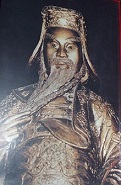






1698 On Jan. 23 elector Ernest Augustus of Hanover (b. 1629) dies, and his eldest son George Louis (1660-1727) (future King George I of Great Britain) becomes electoral prince (until June 11, 1727). On Feb. 12 the first public school in North Am. is established in Philadelphia, Penn. In June while Peter I the Great is visiting Vienna, a palace rev. by his palace troops (strelitzi) begins in an attempt to restore Sophia Alekseevna to the throne, causing him to rush back and crush them and execute their leaders, becoming unquestioned master of Russia; on Sept. 5 he imposes a beard tax to force his nobles to shave their "Oriental" beards and adopt Western looks and dress; he then goes to England and lives for some time in Deptford, along the banks of the Thames, breaking away from Tartar traditions and entering the French sphere of attraction, recruiting Western experts to help modernize Russia; he takes sunflower seeds to Russia from the Netherlands, and commercial production of sunflowers begins in the 1830s in the Voronezh region, soon spreading into neighboring countries (Bulgaria, Hungary, Yugoslavia, Romania, Ukraine). On Sept. 18 Benigne d'Auvergne de Saint-Mars (-1708) becomes becomes gov. (warden) of the Bastille in Paris (until Sept. 18, 1708), taking his mysterious masked prisoner of 1669 with him. On Oct. 11 the First Treaty of Partition (Treaty of The Hague) to determine the Spanish succession (in doubt since 1685 as Charles II of Spain is childless) names 7-y.-o. Joseph Ferdinand (1692-99) of Bavaria as primary heir (infanta) to Spain, the Indies and the Netherlands, with the French dauphin (eldest son of Louis XIV and Maria Theresa) Louis of France (1661-1711) to receive Naples, Sicily, Tuscan seaports, and the province of Guipozcoa, while Archduke Charles will receive the duchy of Milan; too bad, Charles II of Spain was not consulted, pissing him off, but to preserve the unity of his Spanish monarchy he agrees to make Joseph Ferdinand sole heir to the whole shebang, and the naval powers agree. On Oct. 24 a fleet of four vessels commanded by Pierre Le Moyne d'Iberville (1661-1706) sets sail from Brest to explore and settle Louisiana (La Louisiane) in New France. Saif bin Sultan, imam of Oman takes Ft. Jesus in Mombasa, Kenya from the Portuguese after a 2-year siege, after which they eject them from Zanzibar and other coastal regions N of Mozambique, giving them control of the main slave market on the E African coast in Zanzibar. Adm. Kanhoji Angre (Conajee Angria) (1669-1729) becomes CIC of the Maranatha Navy, fighting the British, Dutch, and Portuguese and becoming lord of the W coast of India from Bombay S to Vingoria in Maharashtra, while the Euros content themselves with labeling him a pirate. New Hampshire (N.H.) is reunited with Mass. Md. gov. (since 1694)Francis Nicholson (1655-1728) returns from Md. to Va., becoming lt. gov. (until 1705), moving the capital from Jamestown to Middle Plantation between the James and York Rivers (founded 1632), which is renamed Williamsburg (modern-day pop. 14), becoming capital of the Colony and Commonwealth of Va. until 1780. As part of their campaign to expand S, Vietnamese gen. Nguyen Huu Canh (1650-1700) is sent by sea by the Nguyen rulers of Hue to detach the area around Saigon ("firewood/cotton stick/palisade") (modern-day pop. 8.4M) from Cambodia, turning it into a major city; on July 2, 1976 it is renamed Ho Chi Minh City. Prussian prince Leopold I of Anhalt-Dessau (1676-1747), freshly returned from the Siege of Namur becomes known as a top drillmaster, and introduces goose-stepping and iron ramrods into the Prussian army by 1700. The slave trade is opened to English merchants by Parliament. The Isthmian Bubble bursts when 1K Scottish settlers sent to found New Edinburgh on the Isthmus of Panama are decimated by tropical diseases, and the remainder are wiped out by the Spanish. A bad fire engulfs Tosa, Japan. Cotopaxi Volcano in Ecuador erupts, destroying the city of Tacunga. The city of Pensacola, Fla. (modern-day pop. 53K/461K) in the W Fla. Panhandle on Pensacola Bay, protected by the barrier island of Santa Rosa that connects to the Gulf of Mexico is founded by the Spanish as a presidio, named after the Muskogean-speaking Pensacola tribe, going on to be nicknamed "the City of Five Flags" (Spain, France, Great Britain, U.S., Confed. States of Am.), "America's First Settlement", and "Emerald Coast"; in 1913 the Naval Air Station Pensacola is founded, becoming the first in the U.S., giving the city the nickname "Cradle of Naval Aviation"; it goes on to become known for "the world's whitest beaches", and "the red snapper capital of the world". Austrian organist-composer and counterpoint master Johann Joseph Fux (1660-1741) is appointed court composer by HRE Leopold I (until 1741), beating out the usual Italian candidates. The Gen. Society (New East India Trading Co.) is founded in London. The Society for Promoting Christian Knowledge (SPCK) is founded in London by philanthropist prelate Dr. Thomas Bray (1656-1730) et al., becoming the most important society within the Anglican Church. German pietist Lutheran pastor and Bible scholar August Hermann Francke (1663-1727) founds the Franckesche Stiftungen orphanage school, with 100 orphans and 500 day students, emphasizing Bible studies. The Bibliotheca Casanatense in Rome is founded by Cardinal Casanatense. Robert South calls an anti-Trinitarian a "Mahometan Christian". The first paper is manufactured in North Am. Architecture: Henry Winstanley (1644-1703) begins the Eddystone Lighthouse in Plymouth, England (finished 1700) - then hopes for the Perfect Storm? Jules Hardouin-Mansart designs the Place Vendome in Paris. Andreas Schluter begins decorating the Royal Palace in Berlin (finished 1706). Nonfiction: John Cockburn (1652-1719), Bourignianism Detected; or The Delusions and Errors of A. Bourignon and Her Growing Sect. Jeremy Collier (1650-1726), A Short View of the Immorality and Profaneness of the English Stage (Mar.); Anglican rector of Ampton near Bury St. Edmunds, who was arrested in 1692 for suspected involvement in a Jacobite plot and then outlawed in 1696 for granting absolution on the scaffold to two men who had tried to assassinate William III attacks dramatists John Dryden (1631-1700), William Congreve (1670-1729), John Vanbrugh (1664-1725) et al. for "bawdry and profaneness", causing another stir and scaring them off - only 300 years to the XXX-rated Internet? William Congreve (1670-1729), Amendments of Mr. Collier's False and Imperfect Citations. Charles Davenant (1656-1714), Discourses on the Public Revenues and on the Trade of England, Part 2; describes "in a more sustained and complete form the idea of the 'general' balance of trade". Gerard Langbaine and Charles Gildon, The Lives and Characters of the English Dramatick Poets. Johann Jakob Hottinger (1652-1735), Helvetische Kirchengeschichte (Swiss Church History) (4 vols.) (1698-1729); a polemic against Roman Catholicism. Gottfried Wilhelm von Leibniz (1646-1716), Monadology. Ludovico Maracci (1612-1700), The Quran (Koran); first Latin trans. since 1143 (repub. 1543); intro. is titled "Refutation of the Quran". Algernon Sidney (1623-83), Discourses Concerning Government (posth.); used to justify liberal provisions in constitutions; "God helps those who help themselves" (stolen for the 1757 ed. of Ben Franklin's Poor Richard's Almanac). Births: Italian poet-librettist Pietro Metastasio (Pietro Antonio Domenico Trapassi) (d. 1782) on Jan. 3 in Rome. Prussian gen. Ernst Heinrich August de la Motte Fouque (Fouqué) (d. 1774) on Feb. 4 in The Hague; born to an old Norman Huguenot family. French mathematician-astronomer Pierre Bouguer (d. 1758) on Feb. 16 in Croisic; son of Jean Bouguer (-1714). Scottish mathematician Colin (Gael. "young creature") Maclaurin (d. 1746) in Feb. English "The Microscope" naturalist Henry Baker (d. 1774) on May 8 in London. French Rococo-Neoclassical architect Pierre Contant d'Ivry (d. 1777) on May 11 in Ivry-sur-Seine. French mathematician-philosopher Pierre Louis Moreau de Maupertuis (d. 1759) on July 17 in Saint-Malo; educated at the College de La Marche in Paris. Swiss writer-philologist Johann Jakob Bodmer (d. 1783) on July 19 in Greifensee (near Zurich). Italian violin maker Giuseppe (Joseph) Guarneri del Gesu (d. 1744) on Aug. 21; rival to Antonio Stradivari (1644-1737). Danish bishop Erik Pontoppidan (d. 1764) on Aug. 24 in Aarhus, Jutland. French chemist (suptd. of the Jardin du Roi) Charles Francois de Cisternay Du Fay (d. 1739) on Sept. 14 in Paris; discoverer of positive and negative electricity. French Versailles architect Ange-Jacques Gabriel (d. 1782) on Oct. 23 in Paris; pupil of Robret de Cotte. French gov.-gen. of New France (1755-60) Pierre de Rigaud de Vaudreuil de Cavagnial, Marquis de Vaudreuil (d. 1778) on Nov. 22 in Quebec, Canada; son of Philippe de Rigaud Vaudreuil (1643-1725); uncle of Louis-Philippe de Vaudreuil (1724-1802). German banker (Jewish) Joseph Suss Oppenheimer (d. 1738) (b. 1699?) in Heidelberg; nephew and stepson of Samuel Oppenheimer (1630-1703); financial adviser to Duke Karl Alexander of Wurrtemberg . English poet Richard Savage (d. 1743). Polish Rabbi (founder of Hasidism) Yisrael Baal Shem Tov (Tob) (Israel ben Eliezer) (d. 1760). Deaths: French New France gov. Louis de Buade, comte de Palluau et de Frontenac (b. 1622) on Nov. 28 in Chateau St.-Louis, Quebec. German elector Ernest August of Hannover (b. 1629) on Jan. 23 in Herrenhausen. Danish natural philosopher Erasmus Bartholin (b. 1625) on Nov. 4 in Copenhagen. Dutch explorer Willem de Vlamingh (b. 1640). French actress Marie Champmesle (b. 1642).





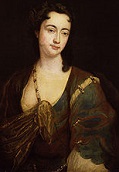
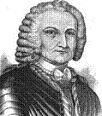

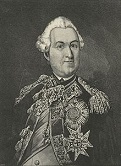
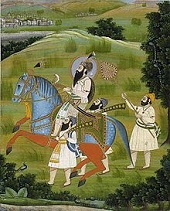


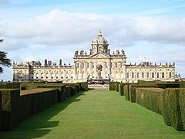
1699 This is the first time that there is a debate on whether the new millennium starts in 1700 or 1701 - at least some people's brains aren't a cipher? Peter I the Great decrees that New Year's Day in Russia will fall on Jan. 1 rather than Sept. 1 - that gives him four months breathing room? By this year there are a many as 200 rangers in service in Md. On Jan. 14 Mass. holds a day of fasting as penance for the witch trials - no time to spare? On Jan. 14 famous circumnavigator William Dampier leaves England in HMS Roebuck, and on July 26 reaches Dirk Hartog Island at the mouth of Shark Bay in W Australia, then explores the NW coast of Australia, and passes Timor on the way to New Guinea, which he sights on Dec. 3, passing New Hanover, New Ireland, and New Britain (modern-day Bismarck) Islands and charting the Dampier Strait, finally returning to England in Aug. 1701 after ending up marooned near Ascension Island for five weeks; too bad, he ends up getting court-martialed for cruelty and kicked out of the Royal Navy, so he goes back to being a pirate - will it be any dampier for him now? On Jan. 16 Isaac Newton writes a letter to John Flamsteed, with the soundbyte: "I do not like to be dunned and teezed by foreigners about Mathematical things." On Jan. 26 the Treaty of Karlowitz ends the Great Austrian-Turkish War (begun 1683), Polish-Turkish War (begun 1683), and Venetian-Turkish War (begun 1684), ending Ottoman advances and marking the beginning of the disintegration of the Ottoman Empire; Hungary, Transylvania, Croatia and Slavonia are ceded to Austria; the Viennese begin to celebrate the big V by selling crescent-shaped croissants in the shape of the Turkish emblem to with their Turkish coffees; the Hungarian rebels (kuruc) are given amnesty, but pesky Imre Thokoly is excluded, causing him to settle down in the Galata district of Constantinople with the title of count of Widdin until he croaks in 1705. On Feb. 6 Spanish infanta Joseph Ferdinand (b. 1692) suddenly dies of smallpox, upsetting the Spanish succession applecart and giving the French a chance for more maneuvering. On Apr. 13 Patna-born (Vaisakhi) 10th and final Sikh guru Gobind Singh (1666-1708) gives birth to Khalsa, the formal Sikh religious identity with the five symbols, incl. never cutting the hair, carrying a comb for neatness, and wearing knee-length underwear, steel bracelet, and a sword. On Aug. 25 Christian V (b. 1646) dies, and his son Frederick IV (1671-1730) becomes king of Denmark and Norway (until Oct. 12, 1730). On Sept. 23 a total solar eclipse occurs in Europe - I'm barely hanging on. On Nov. 22 the Treaty of Preobrazhensko(y)e is signed by Denmark, Russia, Poland-Lithuania, and Saxony for partition of the Swedish Empire. The English Parliament passes the 1699 Wool (Woolens) Act, prohibiting exports of wool from the Am. colonies and limiting wool production in Ireland, but shows leniency by leaving their linen trade undisturbed; the net effect forces all wool and woll products produced by British colonies and dependencies to be sold in British markets for resale to British citizens, forcing shopkeepers to begin buying more flax and hemp; it is repealed in 1867; meanwhile the economy tanks, causing Roman Catholics to emigrate to Spain and France, and the Protestants to the New World. Indian slaves revolt in Trinidad. The Virginia Black (Slave) Code declares that slaves have the status of lifelong property (real estate), and makes whippings and other corporal punishment standard practice for uppity slaves, beginning the tradition of the white "cracker" - gotta whip that real estate into shape? Ang Em (-1722) becomes king of Cambodia (until 1700, then 1710-22). Billingsgate Market in SE London on the Isle of Dogs becomes a fish-only market (until 1982). William Penn returns to Penn. to rein in his deputy before going back to England permanently in 1701. The region of Liechtenstein between Switzerland and Austria is sold by the counts of Hohenems to the Liechtenstein dynasty. Mannheim, Germany (burnt in 1689) is rebuilt and fortified. Capt. Kidd arrives in the West Indies, finds that he is wanted for piracy, sets sail for New England, lands in Oyster Bay in Long Island, then sends his privateering sponsor New York Province gov. #12 (since 1698) Richard Coote, 1st Earl of Bellomont (Bellamont) (1636-1700) a letter along with some plunder, claiming innocence - asshole jokes here? The British Parliament calls Virginia "His majesty's ancient and great colony and dominion", giving it the name Old Dominion. S.C. exports 366 tons of rice this year. French colonizers (from Montreal) Jean-Baptiste Le Moyne, Sieur de Bienville (1680-1767) and his older brother Pierre Le Moyne d'Iberville (1661-1706) sight an Indian portage to Lake Ponchartrain and the Gulf of Mexico, and found the first European settlement in La. at Ft. Maurepas (modern-day Ocean Springs, Miss., pop. 17.4K); the Quapaw ("downstream") (AKA Arkansas) Sioux Indian tribe allies with them; meanwhile Iberville lands in Ships Island then founds Biloxi, Mississippi (modern-day pop. 45K), exploring the Mississippi Gulf Coast; the first Mardi Gras (Shrove Tuesday) is celebrated on the Mississippi River. The 4900-y.-o. Newgrange Tomb in County Meath, Ireland is discovered (built in -3200?). English composer John Blow (1649-1708) becomes the first composer to the Chapel Royal. Architecture: After suddenly switching careers from dramatist to architect, London-born Sir John Vanbrugh (1664-1726) designs Castle Howard in North Yorkshire in collaboration with trained Nottinghamshire-born architect Nicholas Hawksmoor (1661-1736), creating English Baroque Architecture, based on time spent in France; Castle Howard is featured as Brideshead in the 1981 TV series "Brideshead Revisited" by Evelyn Waugh. The Holy Trinity (Old Swedes) Church in Wilmington, Del. (located on Cape Fear River) is dedicated as a Swedish Lutheran church; its pulpit becomes the oldest one to survive to modern times in the U.S.; it goes Episcopal in 1791. A classic Muslim temple is built in Dehradun in Uttar Pradesh, India. Inventions: Talk about good timing? Dumaurier Duperrier invents the first portable fire pump to put out the imminent fires of Armageddon - a major case of mass tenesmus? Science: Guillaume Amontons of France pub. his rediscovery of the laws of friction first proposed by Leonardo da Vinci; he is pooh-poohed until Charles-Augustin de Coulomb verifies them in 1781. Nonfiction: Richard Bentley (1662-1742), Dissertation Upon the Epistles of Phalaris; makes him a star and gets him appointed master of Trinity College, Cambridge U. next year, followed by regius prof. of divinity in 1717. Gilbert Burnet, Exposition of the Thirty-nine Articles. Dimitrie Cantemir (1673-1723), The Divan, or The Wise Man's Parley with the World, or The Judgment of the Soul with the Body; written in Romanian, Greek and Arabic. Samuel Clarke (1675-1729), Three Practical Essays on Baptism, Confirmation and Repentance; Some Reflections on That Part of a Book Called Amyntor, or a Defence of Milton's Life, Which Relates to the Writings of the Primitive Fathers, and the Canon of the New Testament. Charles Davenant (1656-1714), An Essay on the Probable Methods of Making a People Gainers in the Balance of Trade; attacks the Junto Party; A Discourse on Grants and Resumptions; disses the monarchy for granting "forfeited Irish estates" to friends and allies of the Junto Party. Raoul Anger Feuillet (1653-1709), Choreographie. Music: Jeremiah Clarke (1674-1707), Trumpet Voluntary; AKA the Prince of Denmark's March; played at Lady Diana's wedding. Nicolas de Grigny (1672-1703), Premier Livre d'Orgue (Paris); 2nd ed. 1711; the pinnacle of French Baroque organ music along with Francois Couperin; makes fans of J.S. Bach and Johann Gttfried Walther. Reinhard Keiser (1674-1739), Der bei dem Allgemeinen Welt-Frieden von dem Grossen Augustus Greschlossene Tempel des Janus (opera) (Hamburg). Giuseppe Torelli (1658-1709), 12 Concerti Musicali a Quattro, Op. 6. Music: Reinhard Keiser (1674-1739), Die Verbindung des Grossen Herkules mit der Schonen Hebe (opera) (Hamburg). Thomas D'Urfey (1653-1723) (ed.), Wit and Mirth; or, Pills to Purge Melancholy (1698-1720); multi-vol. collection of songs. Plays: George Farquhar (1677-1707), Love and a Bottle (comedy) (first play); Roebuck, "an Irish Gentleman of wild roving Temper" flees for London after knocking a woman up, and makes friends with Lovewell; "Heav'n was plea'd to lessen my Affliction, by taking away the She-brat"; a hit, causing him to go into playwriting while working as a soldier in the regiment of the earl of Orrery, discovering actress Anne Oldfield (1683-1730). Peter Anthony Motteux (1663-1718), Beauty in Distress; The Island Princess; or, The Generous Portuguese; adapation of the John Fletcher play; music by Daniel Purcell. Poetry: John Dryden (1631-1700), Fables, Ancient and Modern; his last pub. work; verse adaptations from Boccaccio, Chaucer and Ovid, with a critical prose preface. Elkanah Settle, To the Most Renowned the President and the Rest of the Knights of the Most Noble Order of the Toast; about the Kit-Kat Club, known for toasting beautiful babes with verses engraved on the glasses; founded by publisher Jacob Tonson, and named after a mutton pie (you know what, really?). Novels: Francois Fenelon (1651-1715), The Adventures of Telemachus, The Son of Ulysses (Les Aventures de Télémaque); pub. anon.; the educational travels of Ulysses son, accompanied by his tutor Mentor, who is revealed to be Minerva, goddess of wisdom in disguise; how kings exist for their subjects, war is wrong, and all nations are brothers; Louis XIV is not amused, and combined with his siding with Bossuet over the quietism thingie he exiles him to his diocese of Cambrai, where he spends the rest of his life with his pupil Burgundy grinding out letters criticizing the French govt.; repub. by his family in 1717 - no doggie day care center license for vous? Births: Ottoman sultan #25 (1754-7) Osman (Othman) III (d. 1757) on Jan. 2/3 in Constantinople; son of Mustafa II (1664-1703); brother of Mahmud I (1696-1754). German Prussian Sanssouci Palace architect Georg Wenzeslaus von Knobelsdorff (d. 1753) on Feb. 17 in Kuckadel, Crossen an der Oder (modern-day Krosno Odrzanskie County). German "La Sorella Amante" opera seria composer-singer Johann Adolph Hasse (d. 1783) on Mar. 25 in Bergedorf (near Hamburg); husband of Faustina Bordoni (1697-1781). French Rococo engraver-painter-caricaturist Hubert Francois Gravelot (Bourguignon) (d. 1773) on Mar. 26 in Paris, France; pupil of Jean II Restout and Francois Boucher; emigrates to England in 1732-45. Portuguese statesman Sebastiao Jose de Carvalho e Melo (Mello), 1st Count of Oeiras, 1st Marquis of Pombal (d. 1782) on May 13 in Lisbon; educated at the U. of Coimbras. Am. Quaker botanist ("Father of Am. Botany") John Bartram (d. 1777) on May 23 (Old Style) in Darby, Penn. French salonniere Marie Therese Rodet Geoffrin (d. 1777) on June 26 in Paris; known for keeping a salon on the Rue Saint-Honore. French mathematician Charles Etienne Louis Camus (d. 1768) on Aug. 25 in Crecy-en-Brie (near Meaux); educated at the College de Navarre. English botanist John (Joannis) Martyn (d. 1768) on Sept. 12 in London. French Rococo still life painter Jean Baptiste Simeon Chardin (d. 1779) on Nov. 2 in Paris; studies under Noel Nicholas Coypel and Pierre Jacques Cazes; dumps grand subjects for small stuff such as fruit, smoker's boxes and women cleaning turnips. Italian architect Ferdinando Fuga (d. 1782) on Nov. 11 in Florence; student of Giambattista Foggini (1652-1725). Danish-Norwegian pietist king (1730-46) Christian VI (d. 1746) on Nov. 30 in Copenhagen Cstle; son of Frederik IV and Louise of Mecklenburg-Gustrow. Scottish poet Robert Blair (Gael. "plain") (d. 1746) in Edinburgh; educated at the U. of Edinburgh. English poet John Dyer (d. 1757). Italian (Venetian) painter Giovanni Antonio (Gianantonio) Guardi (d. 1760); brother of Francesco Guardi (1712-93). English brewer Sir Benjamin "Ben" Truman (d. 1780); husband of Frances Truman, matrilineal descendant of Cecily Neville, duchess of York; knighted in 1760. Deaths: Dutch painter David Teniers the Younger (b. 1610). Italian painter Il Calabrese (Mattia Preti) (b. 1613) on Jan. 3 in Valletta, Malta. French chemist Claude Bourdelin (b. 1621) on Oct. 15. English diplomat Sir William Temple (b. 1628) on Jan. 27 in Moor Park, Surrey. English politician Sir Josiah Child (b. 1630) on June 22 in Wanstead, Essex. French dramatist Jean-Baptiste Racine (b. 1639) on Apr. 21. French actress Marie Champmesle (b. 1642). Danish-Norwegian king (1670-99) Christian V (b. 1646) on Aug. 25 in Copenhagen. French chemist Pierre Pomet (b. 1658). Bavarian electoral prince Joseph Ferdinand (b. 1692) on Feb. 6. Indonesian Queen Kamalah (b. ?). Persian head mullah Muhammad Baqir Majlisi (b. ?); leaves The Seas of Light (Bihar al-anwar), a Shiite encyclopedia of Prophet Muhammad's words and deeds.